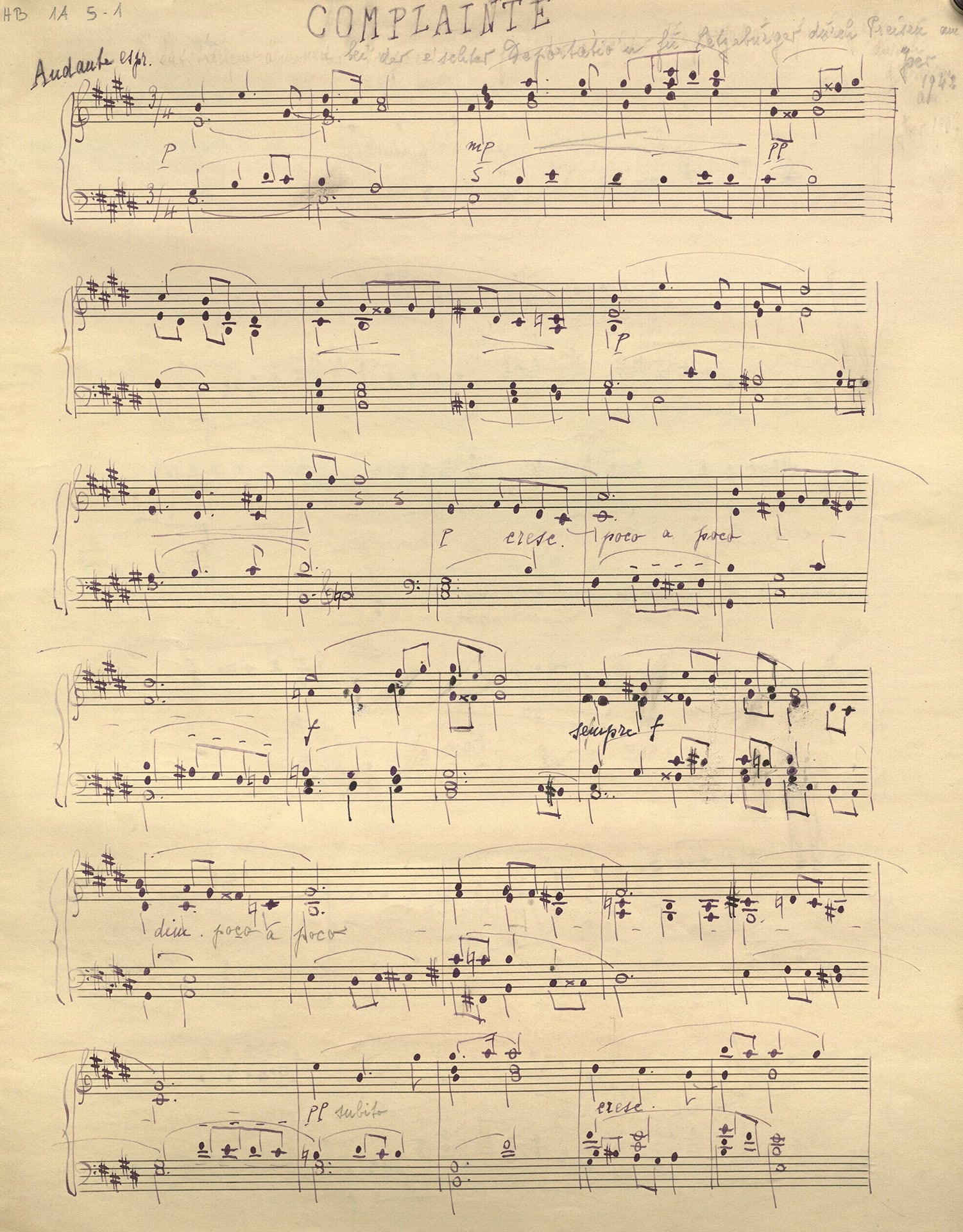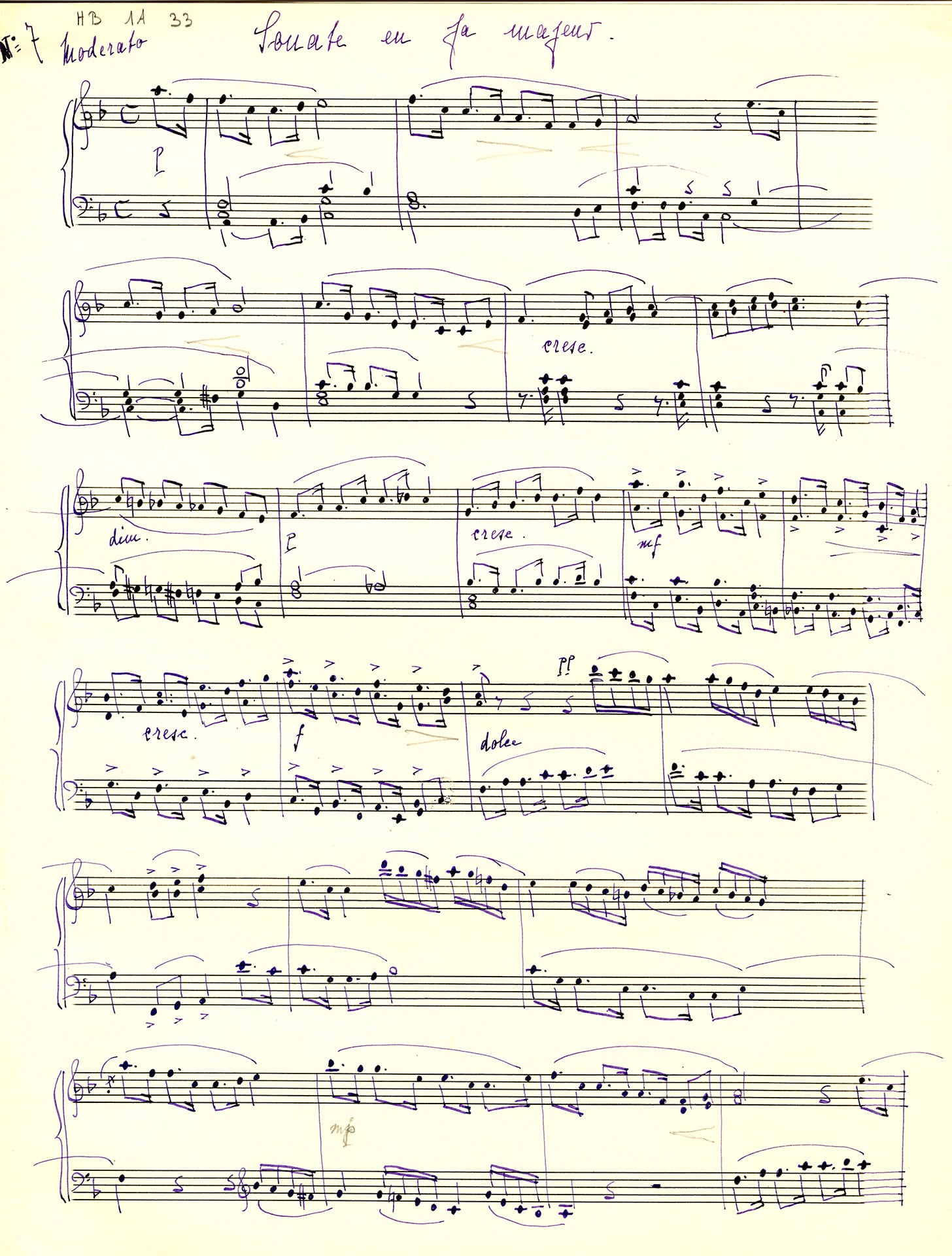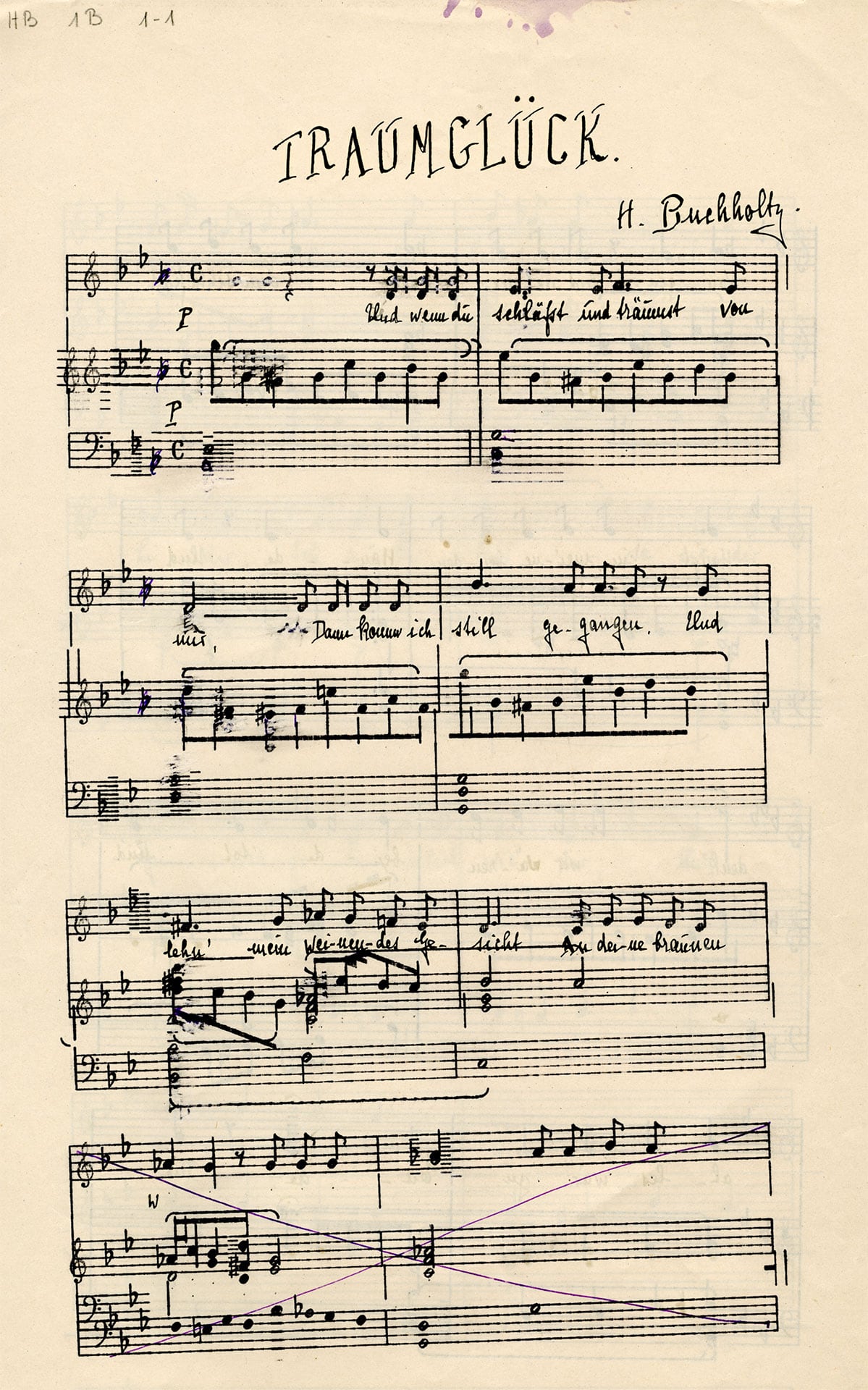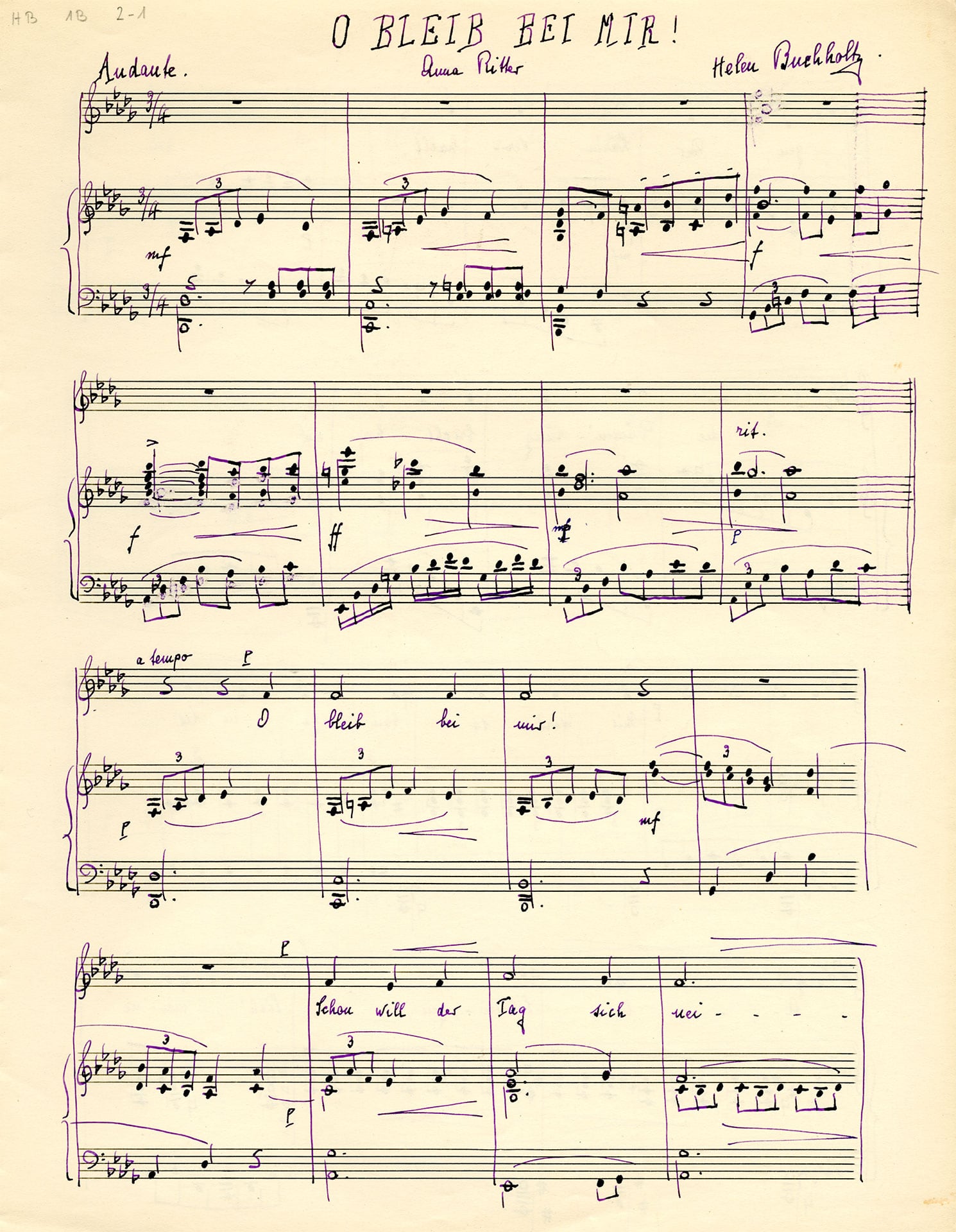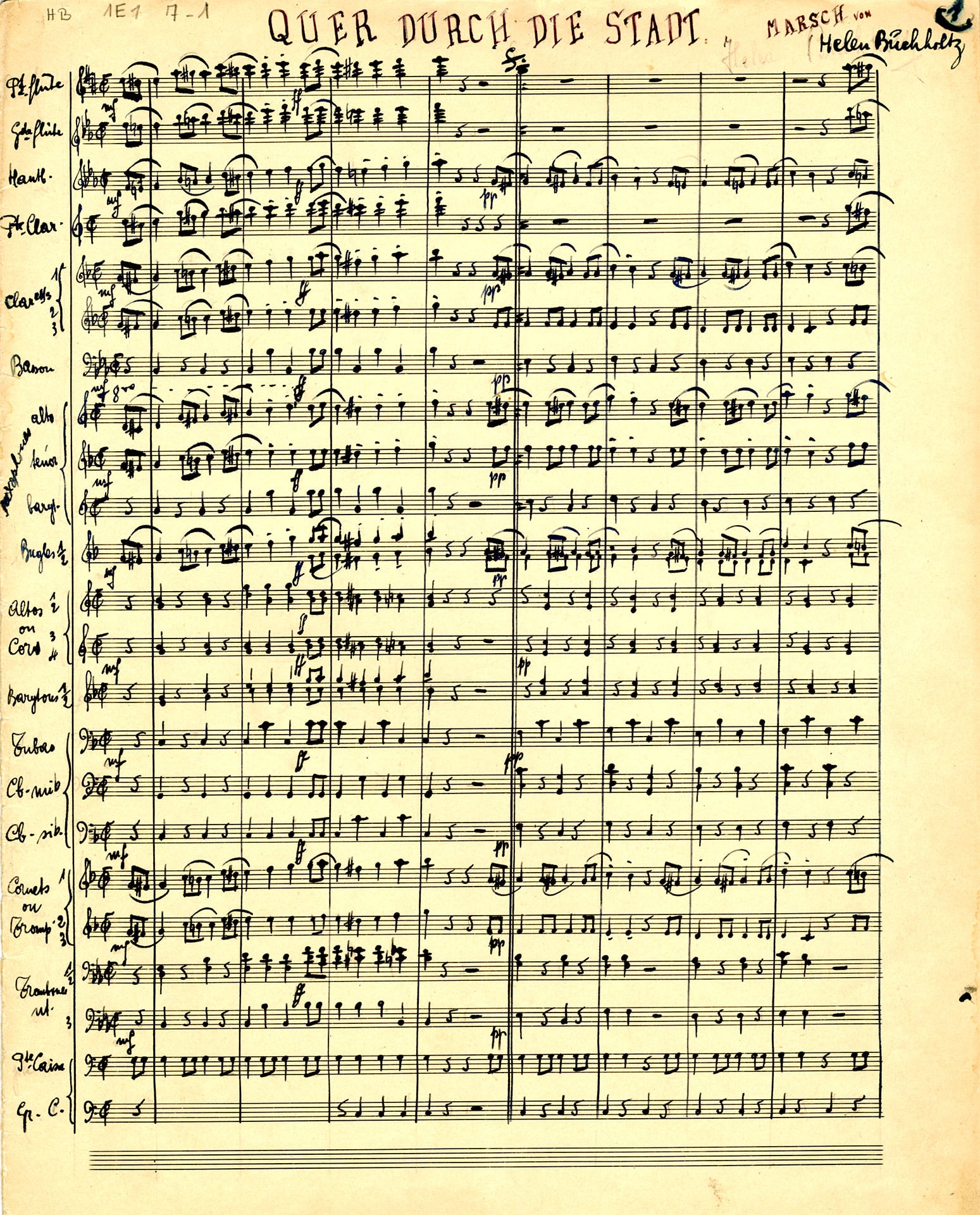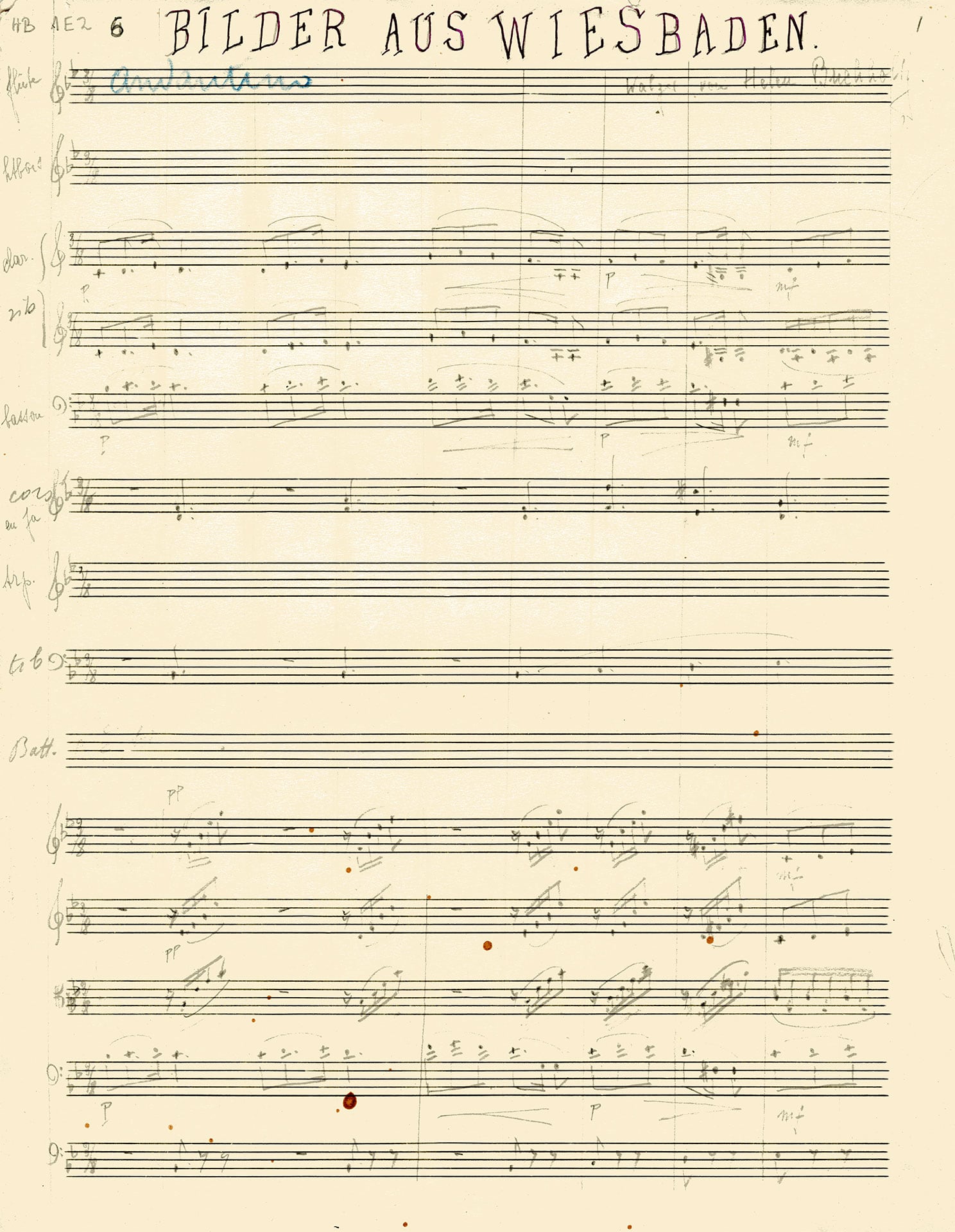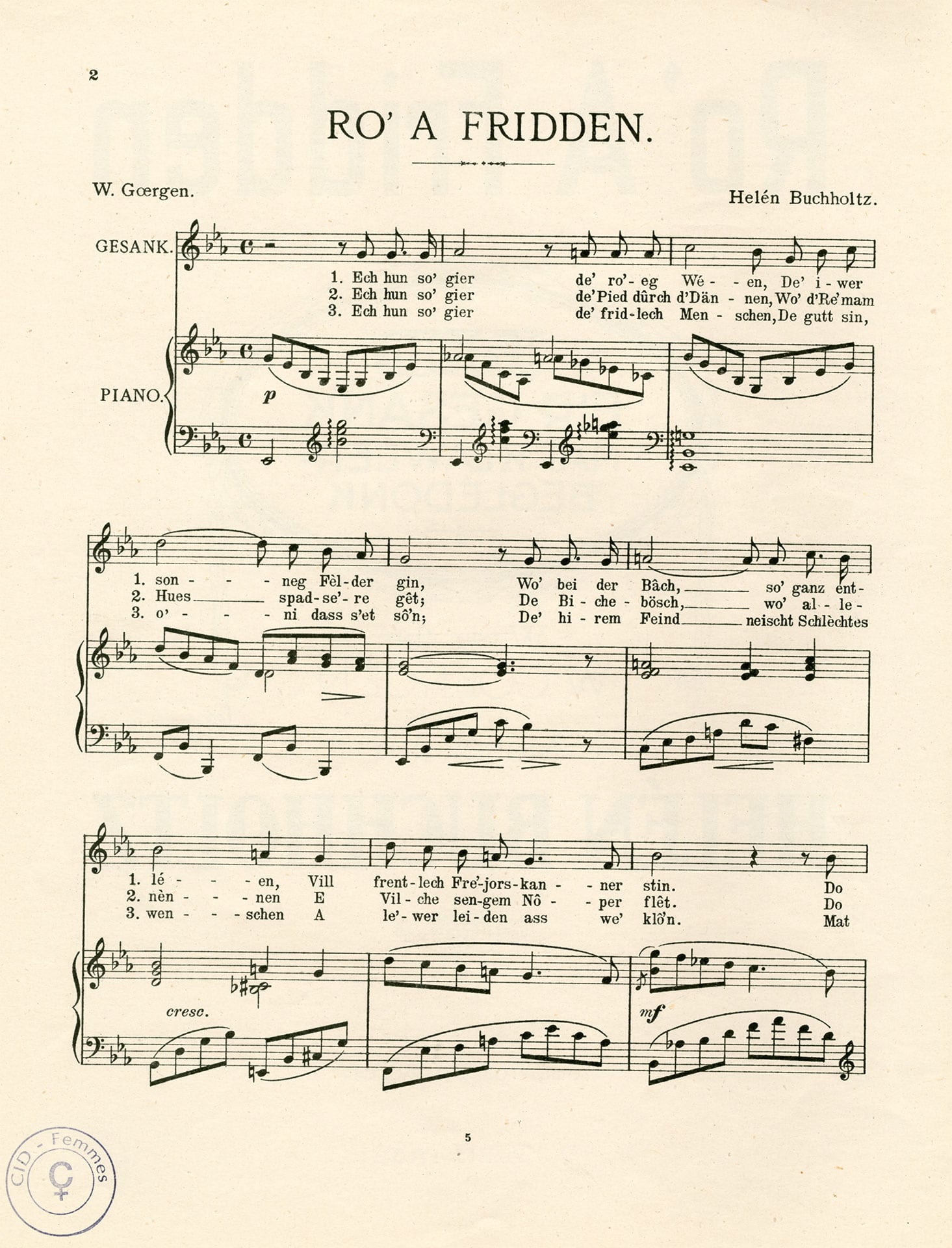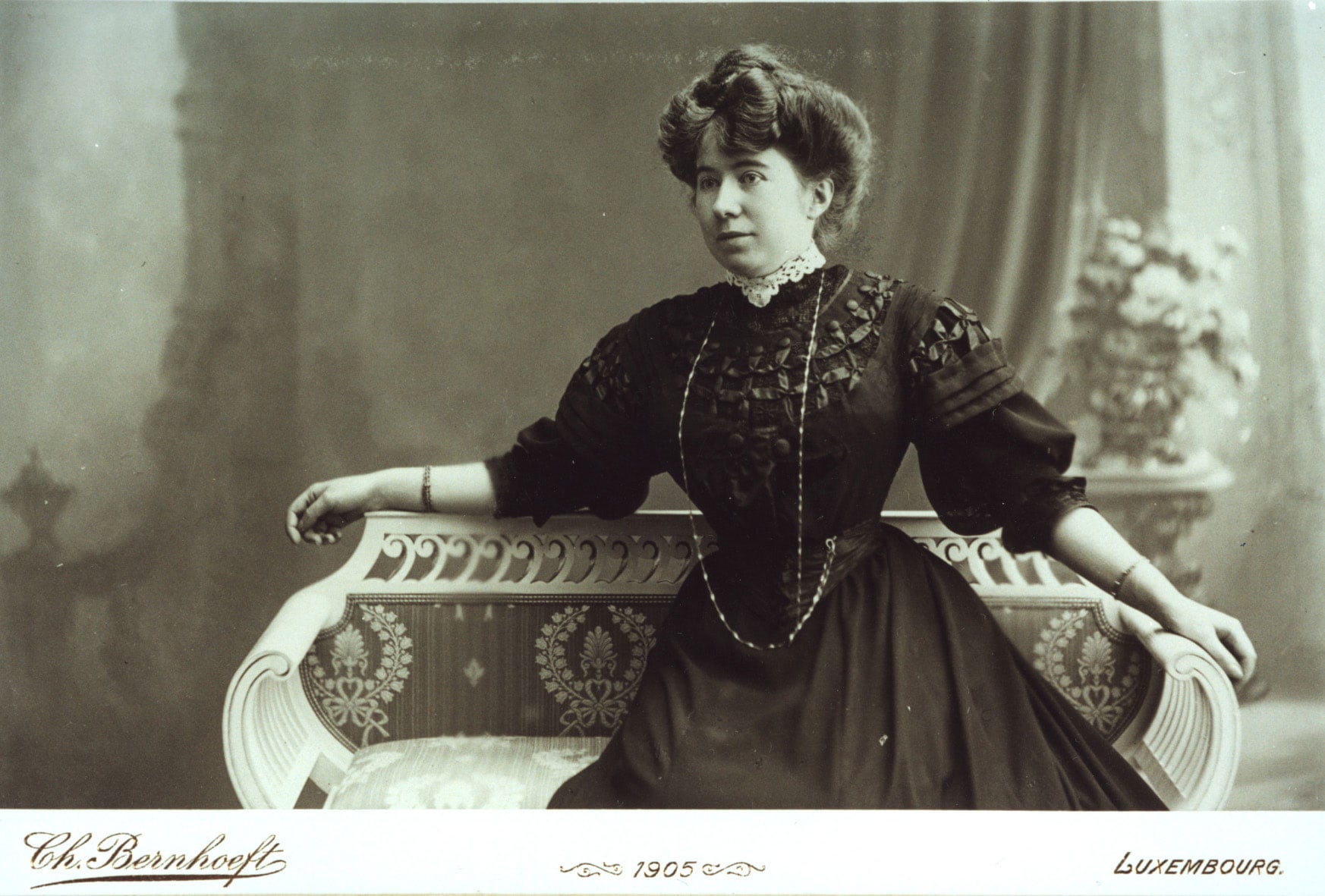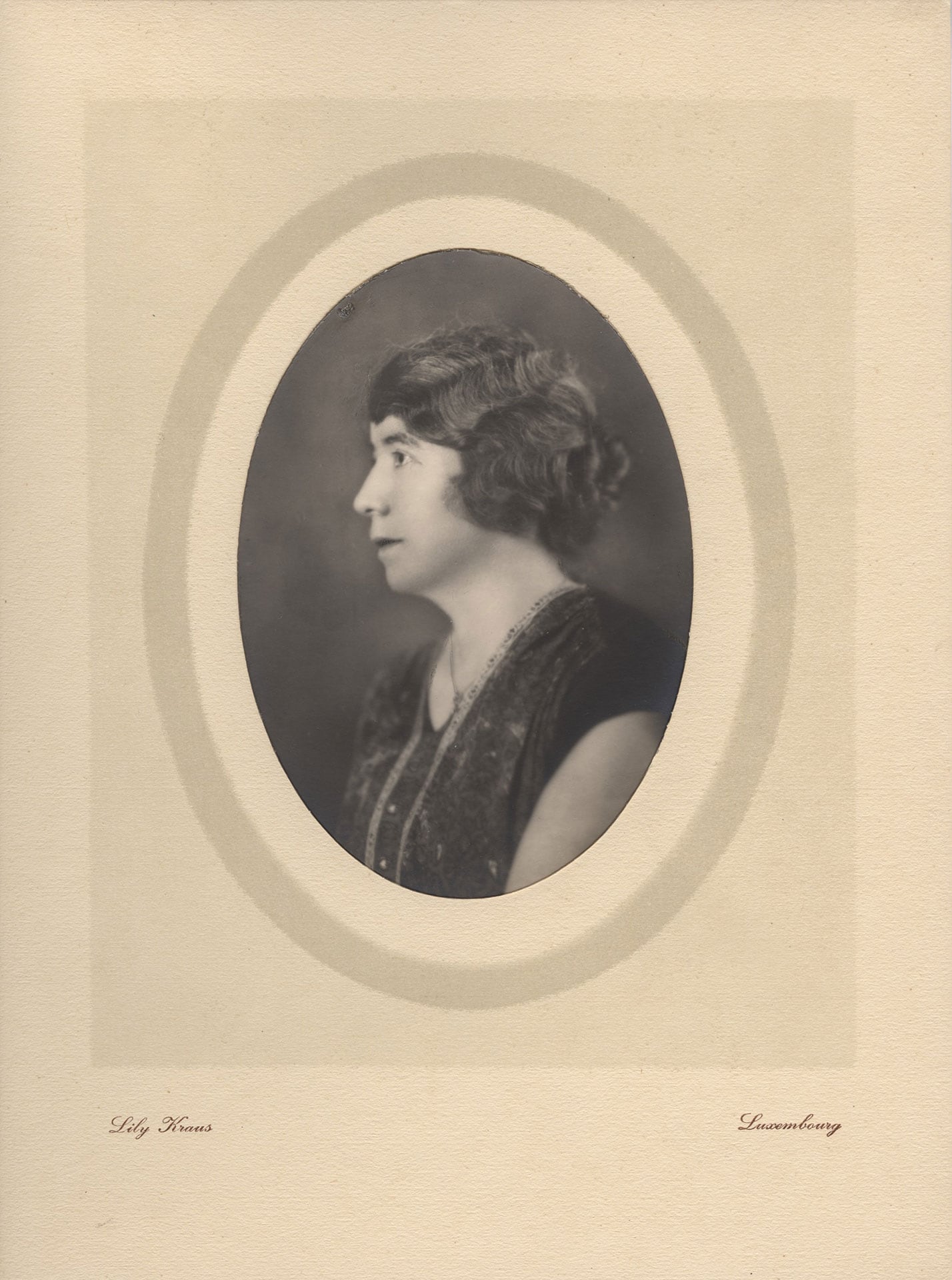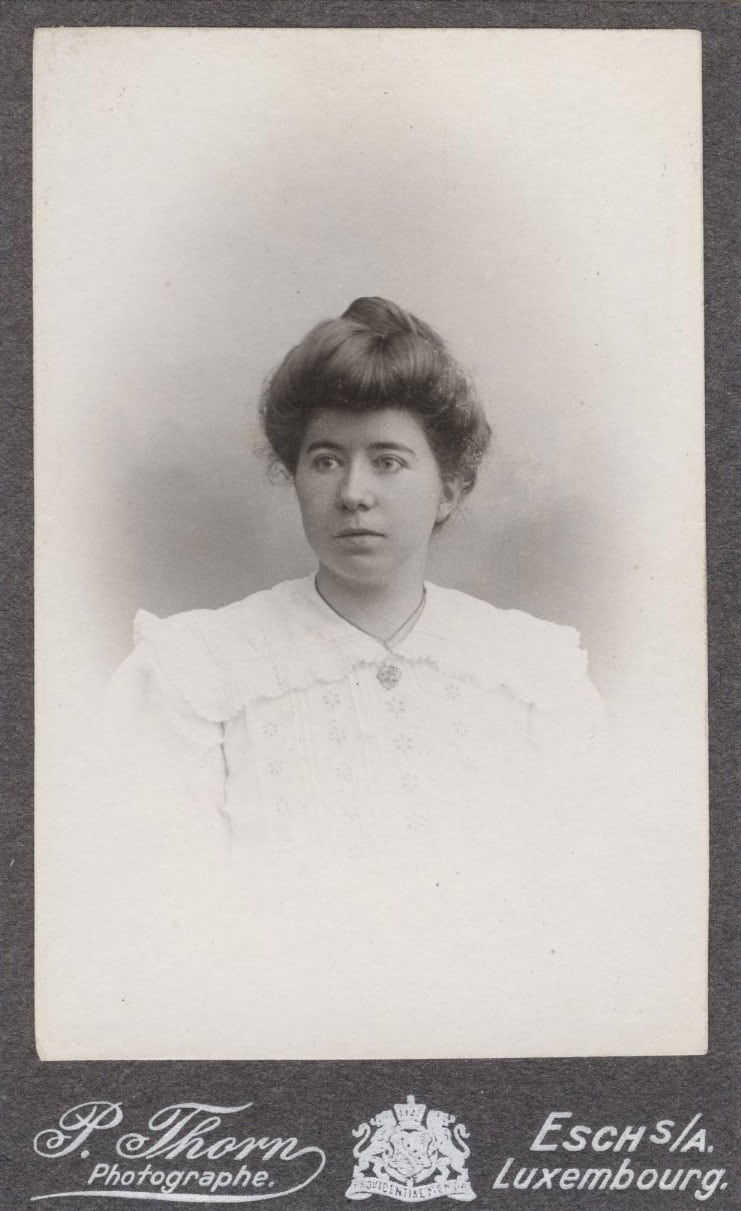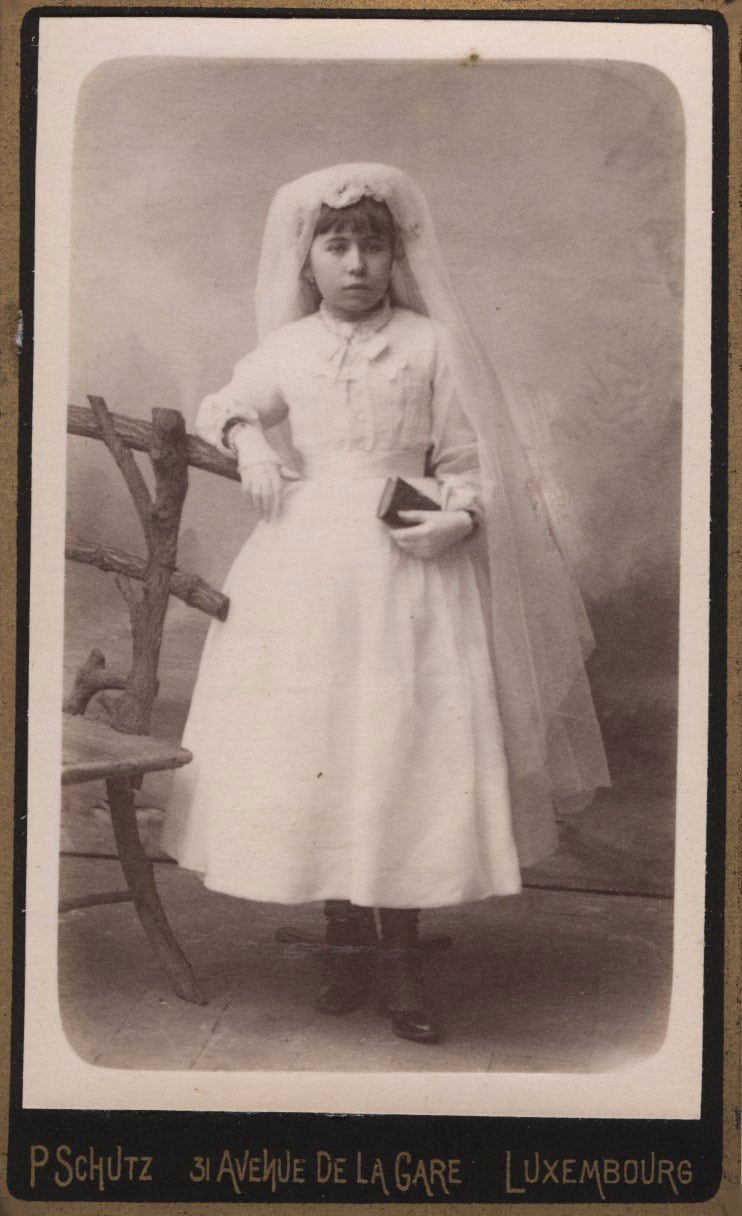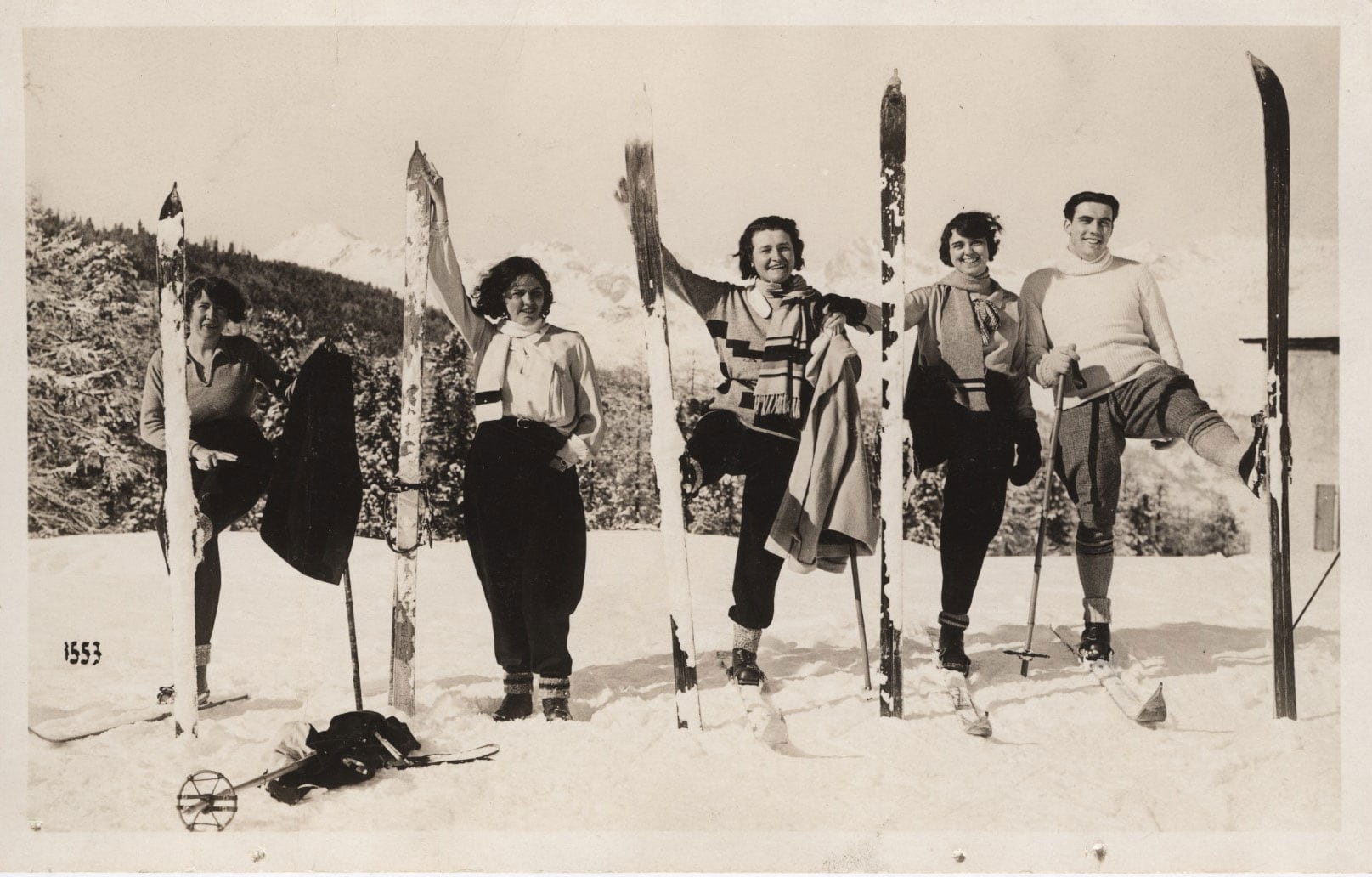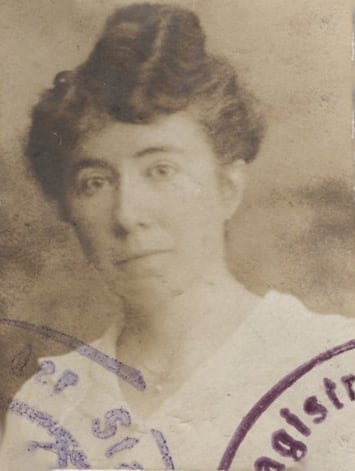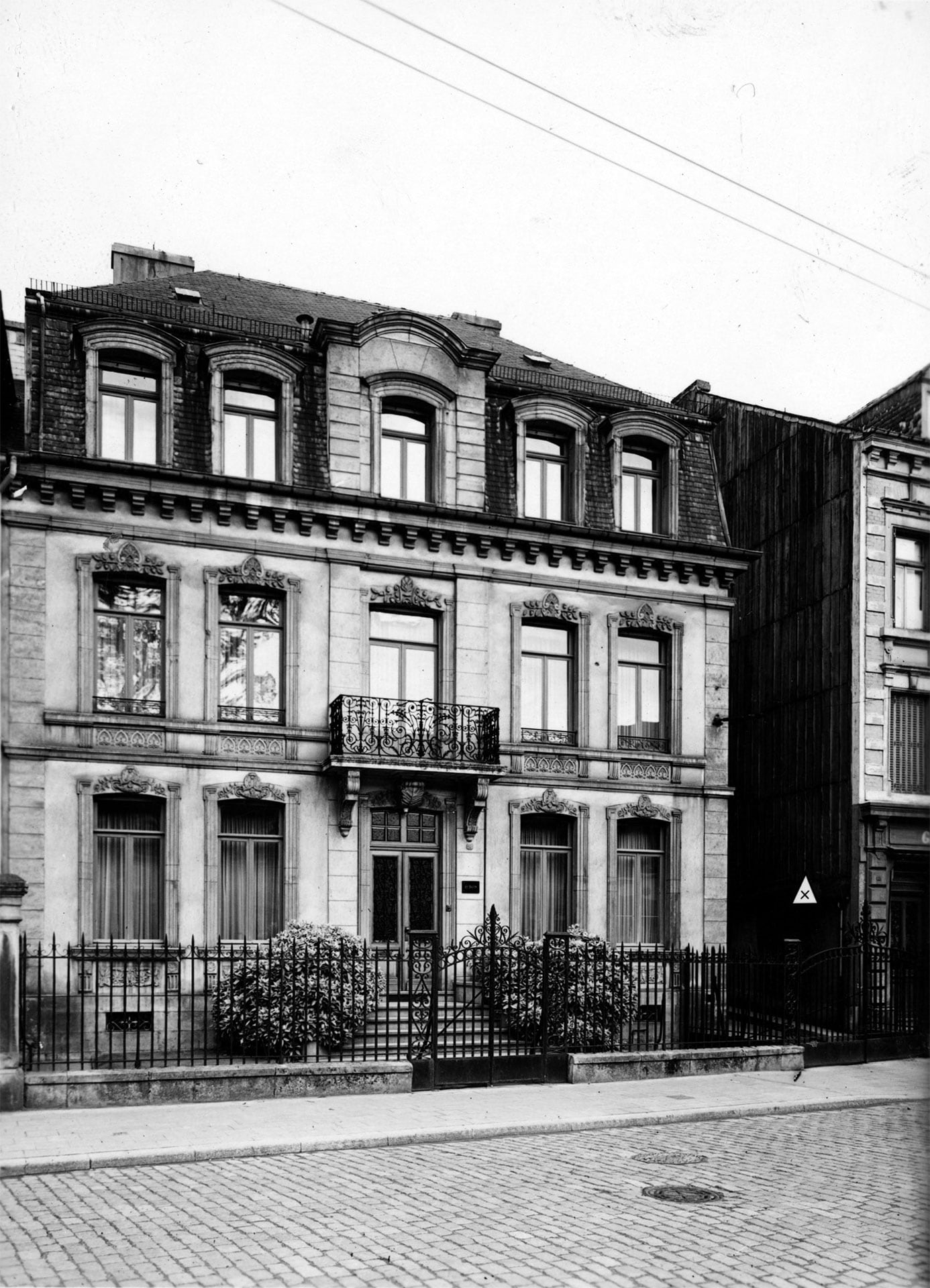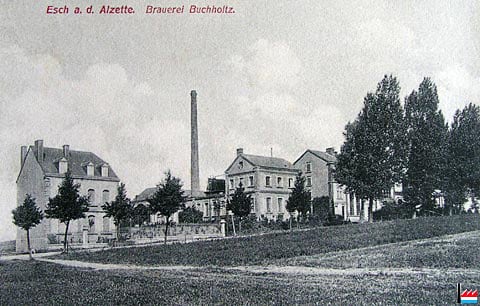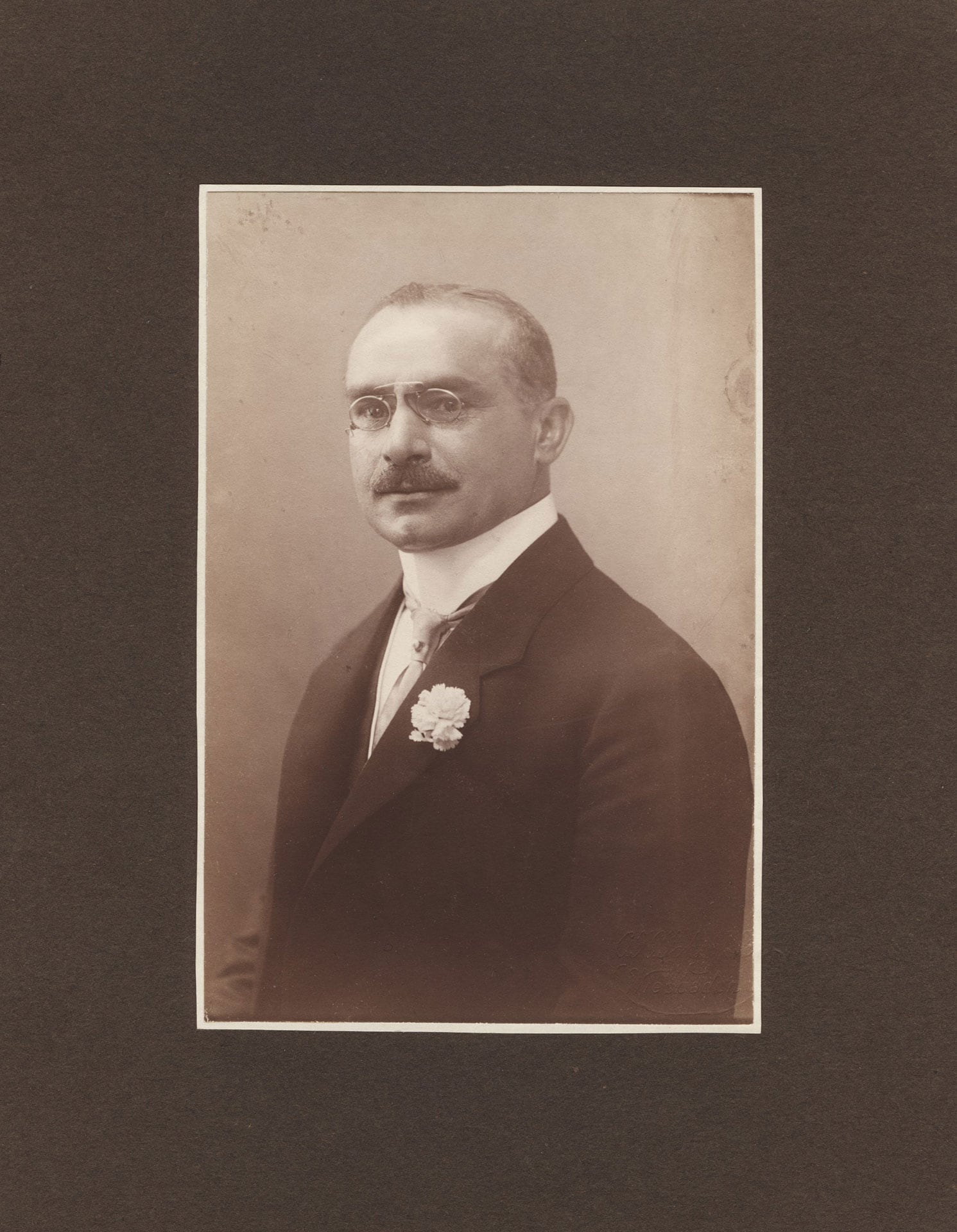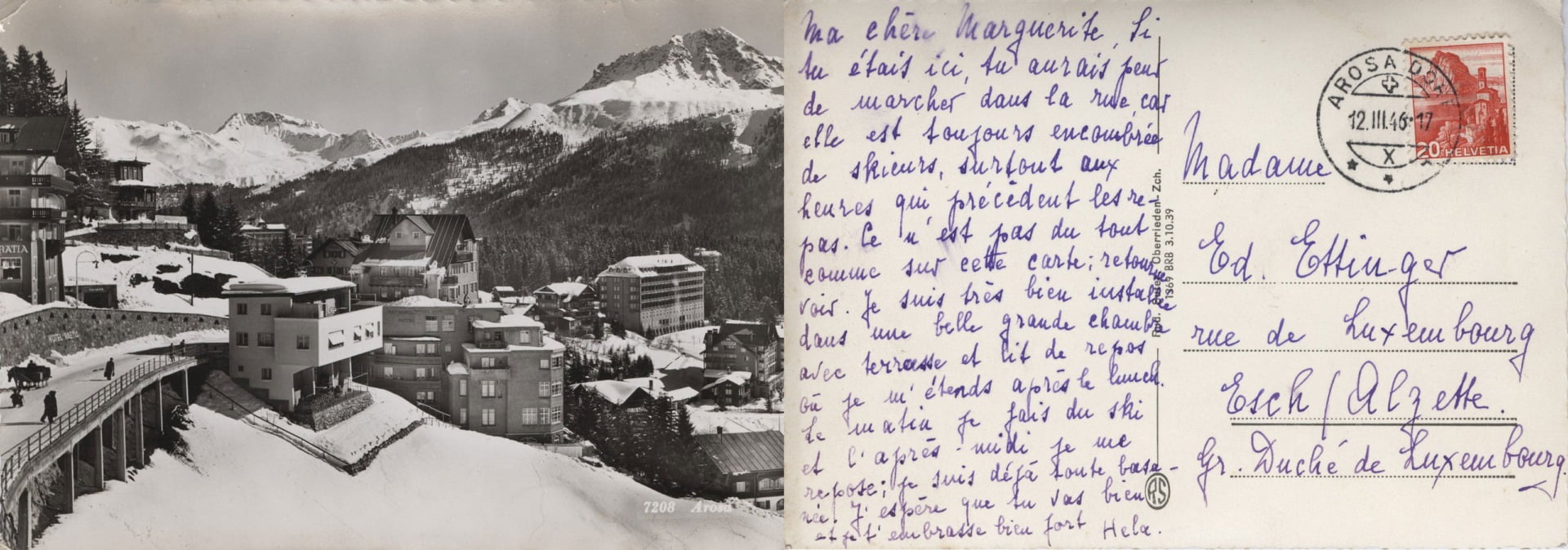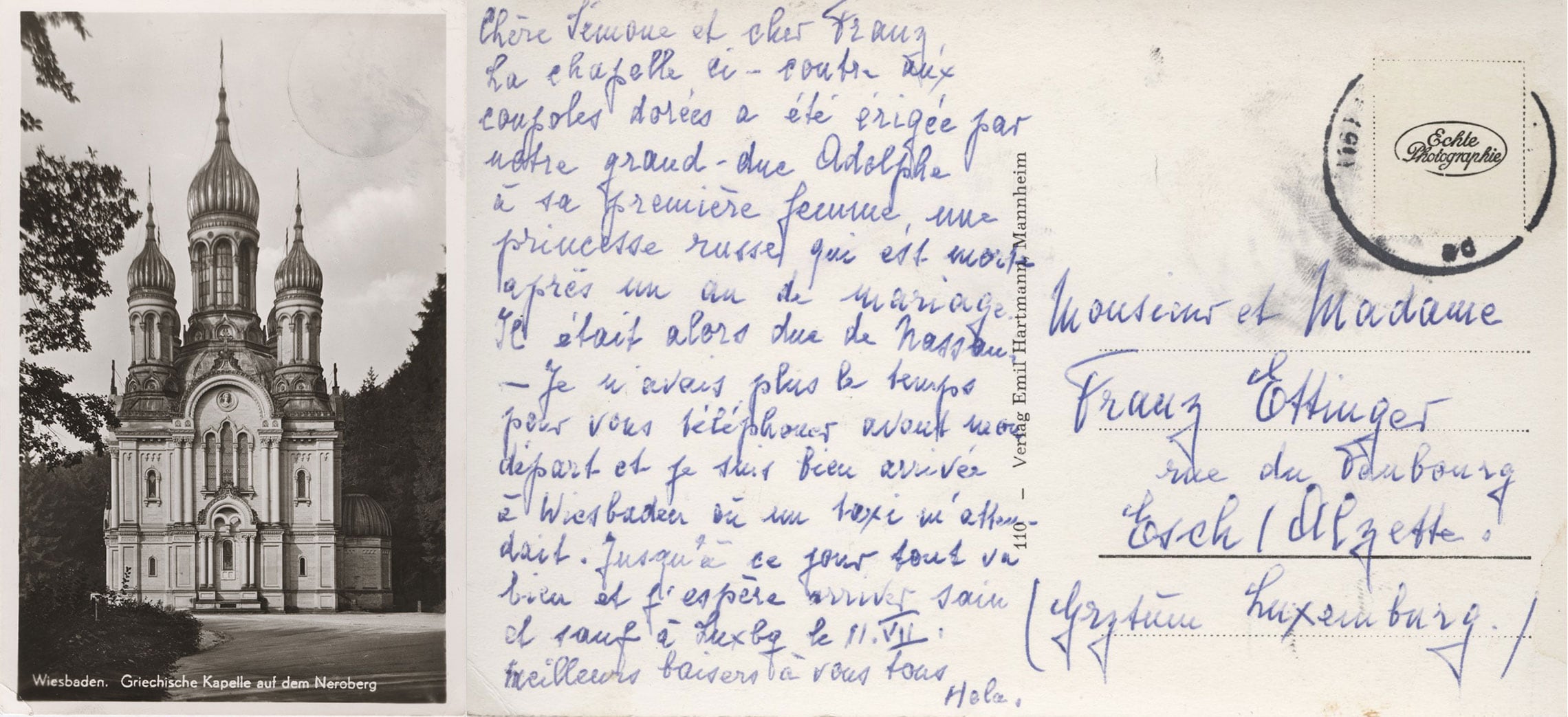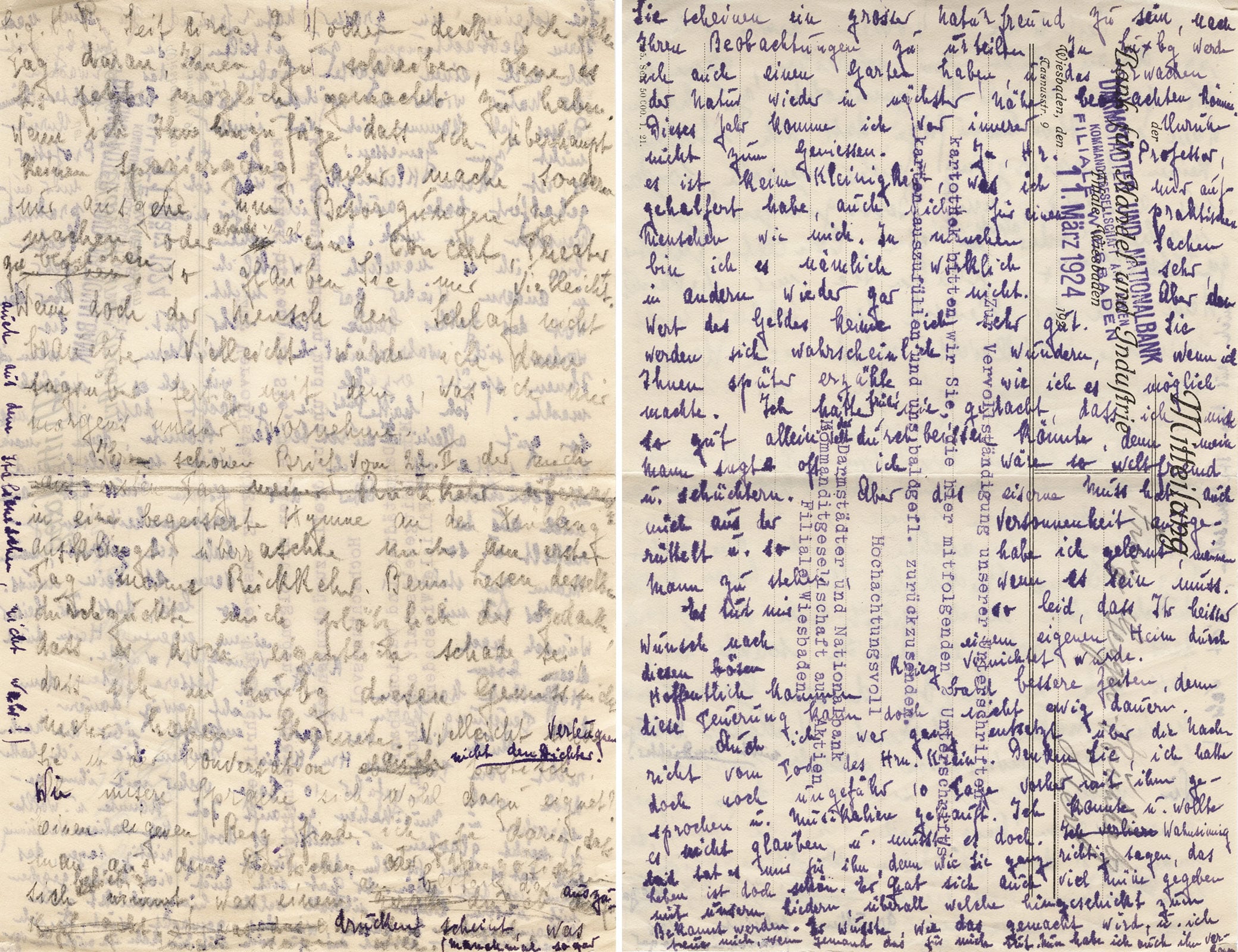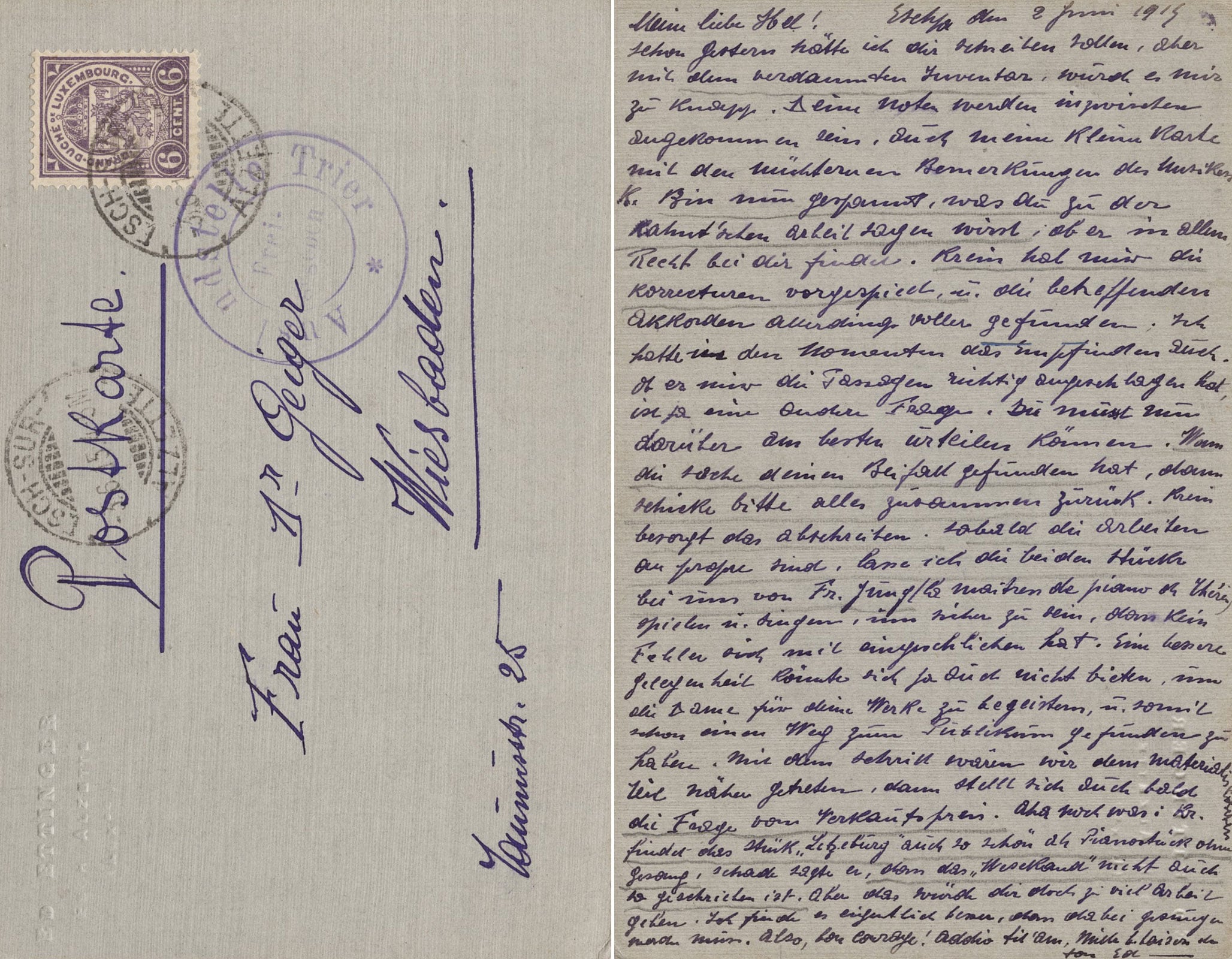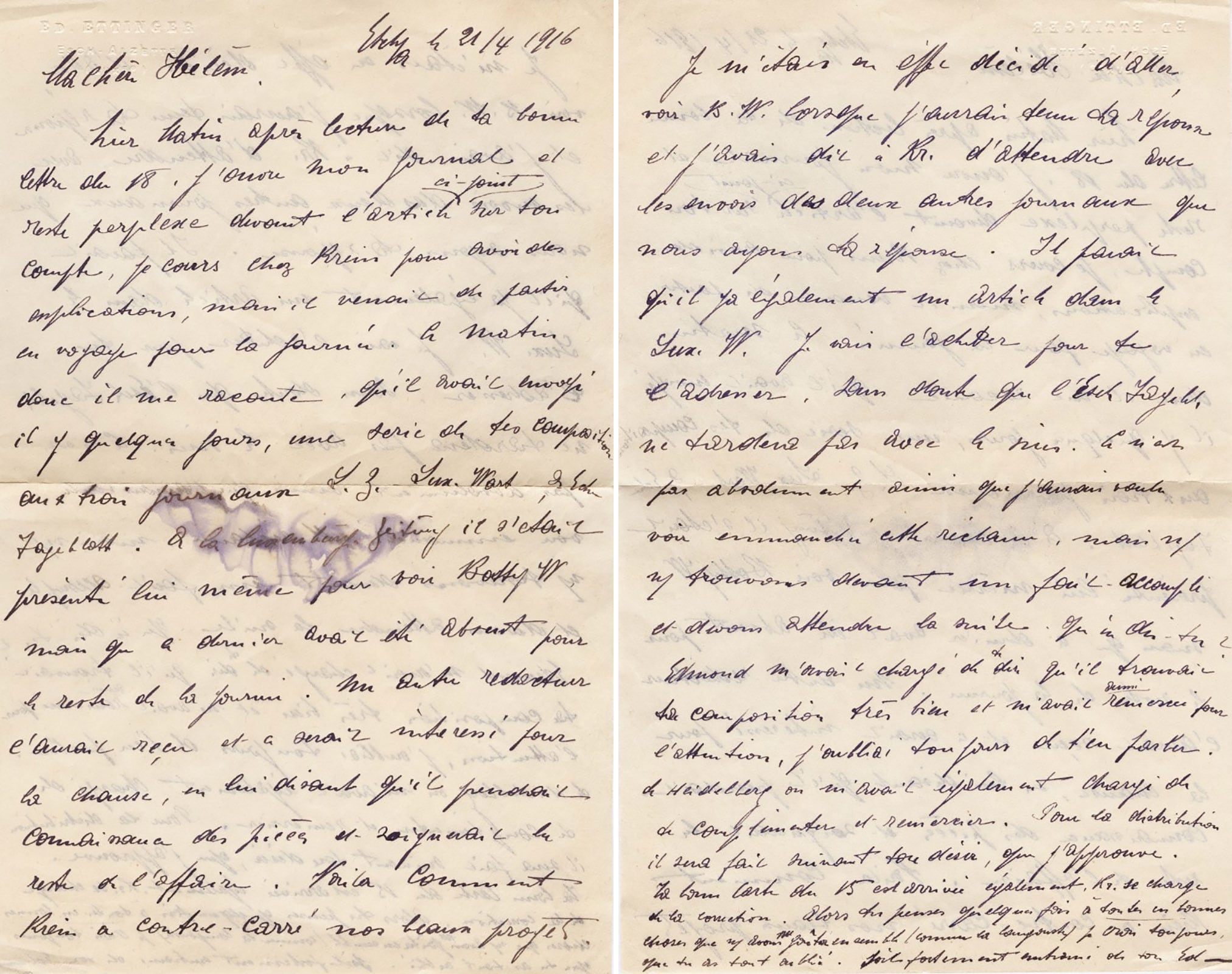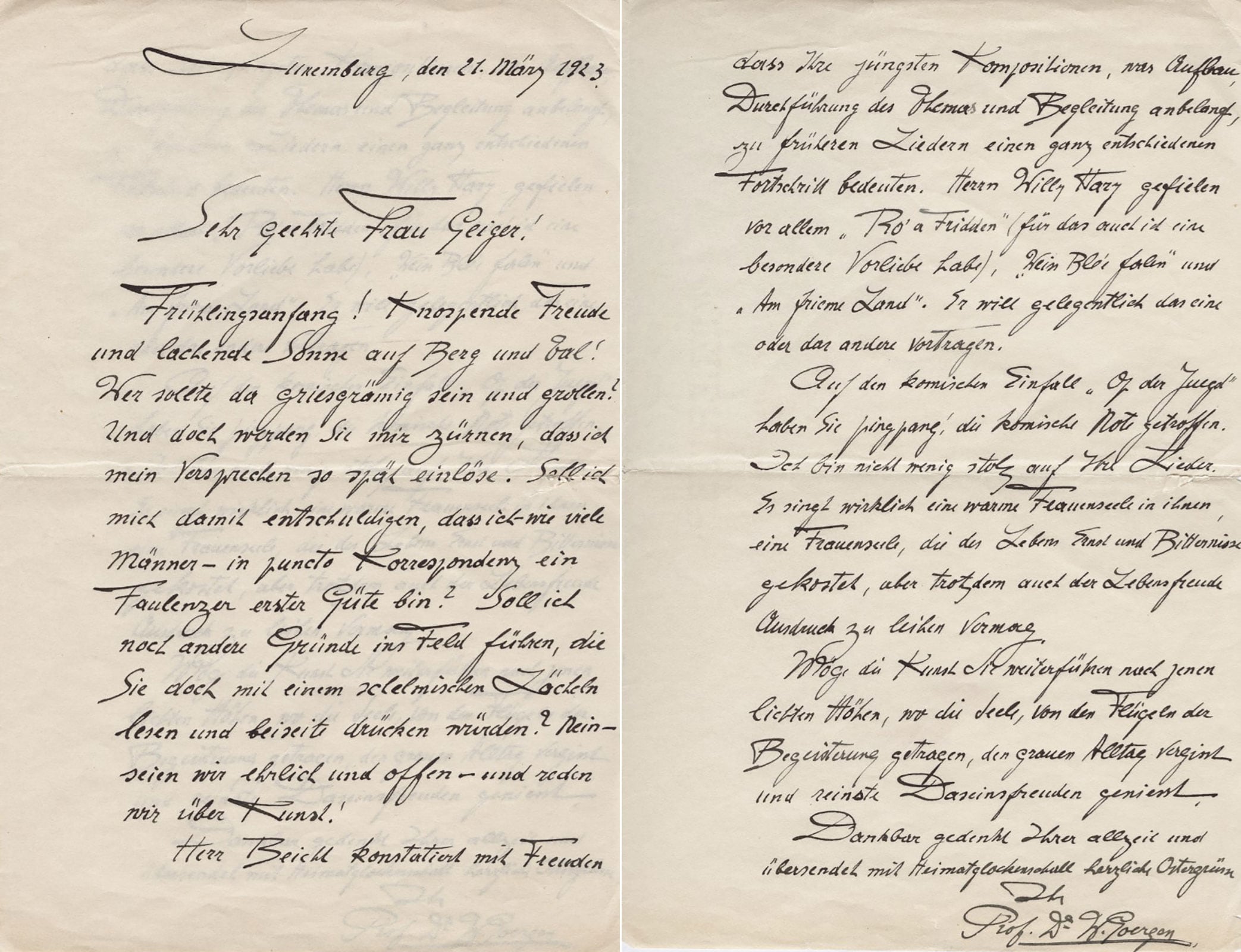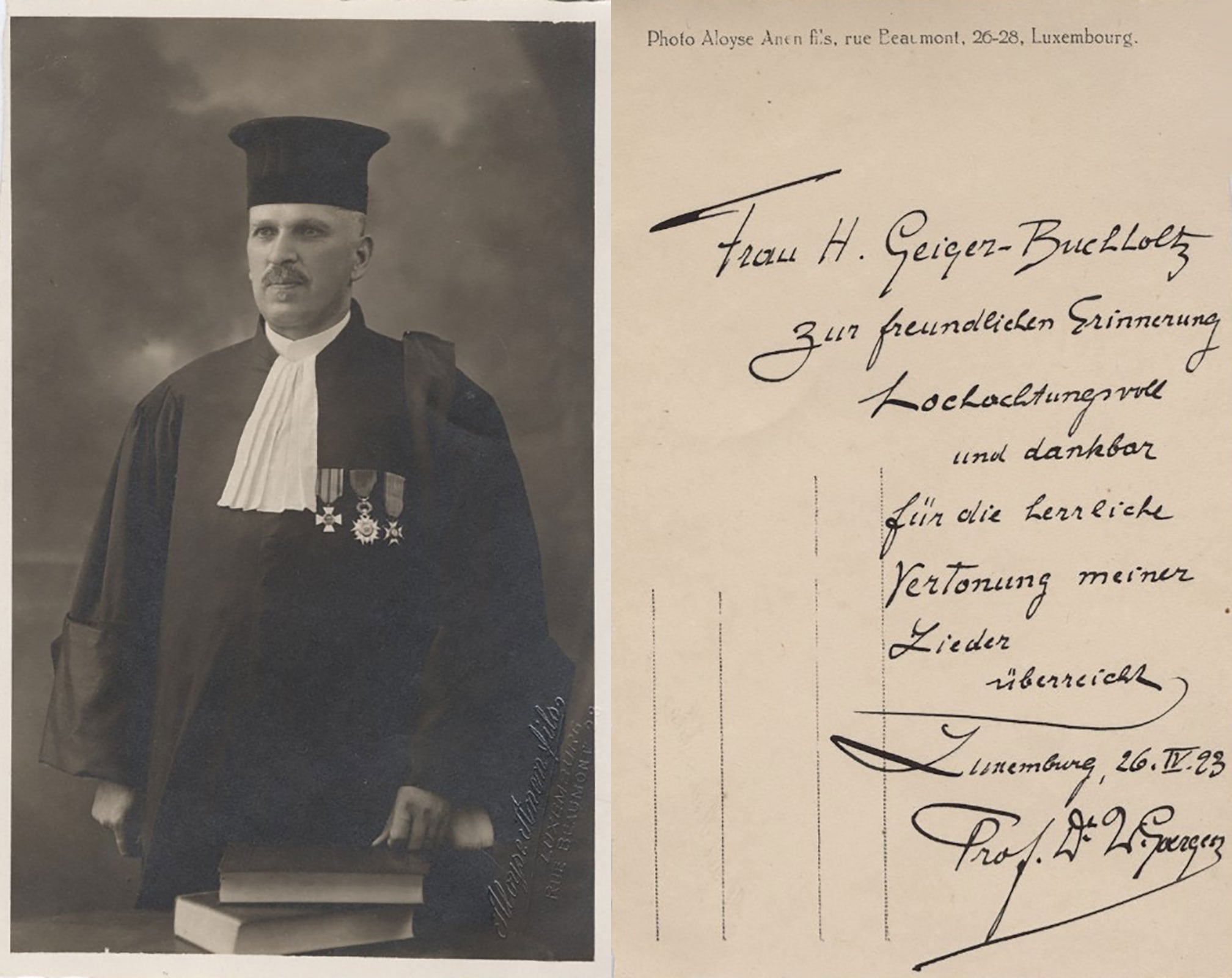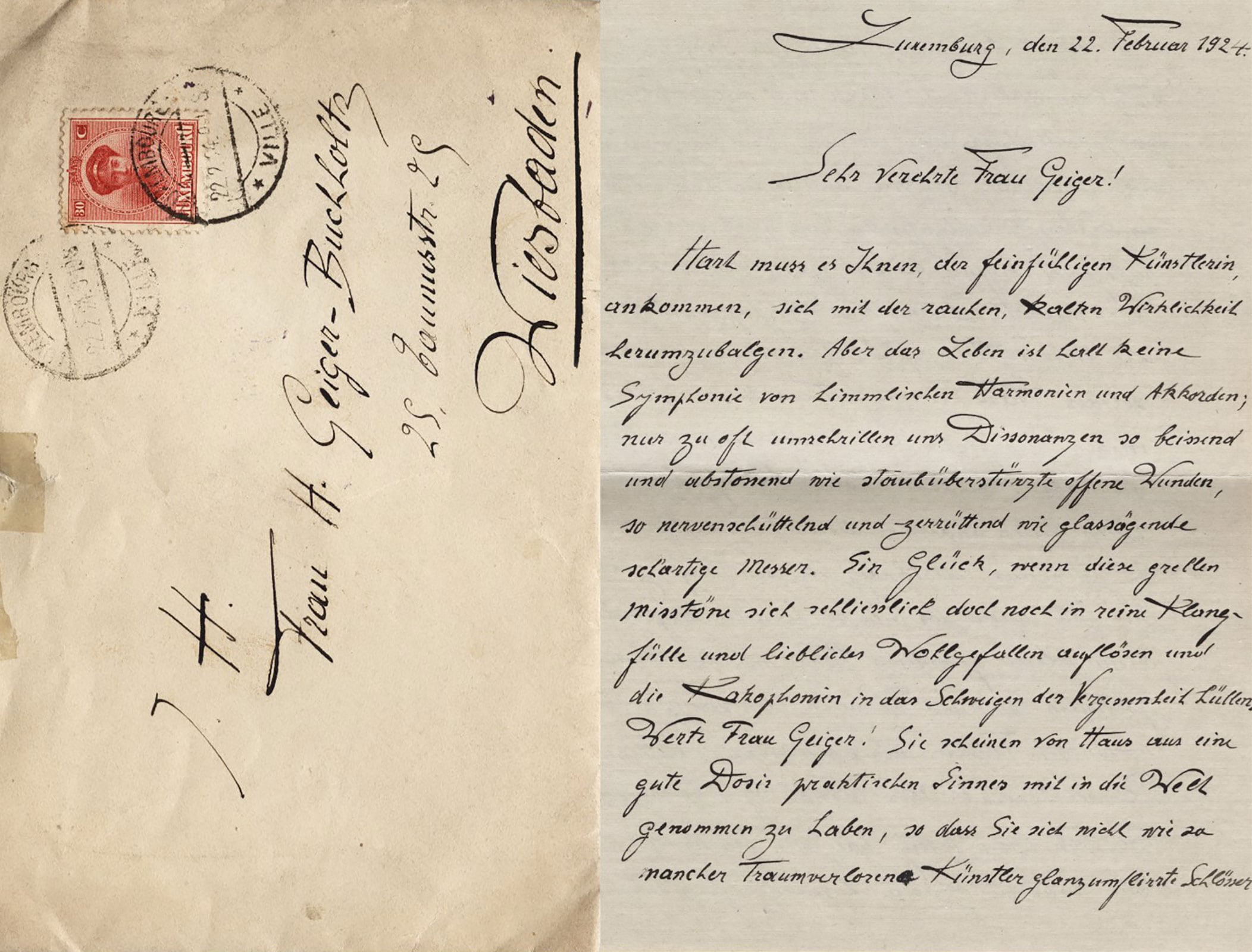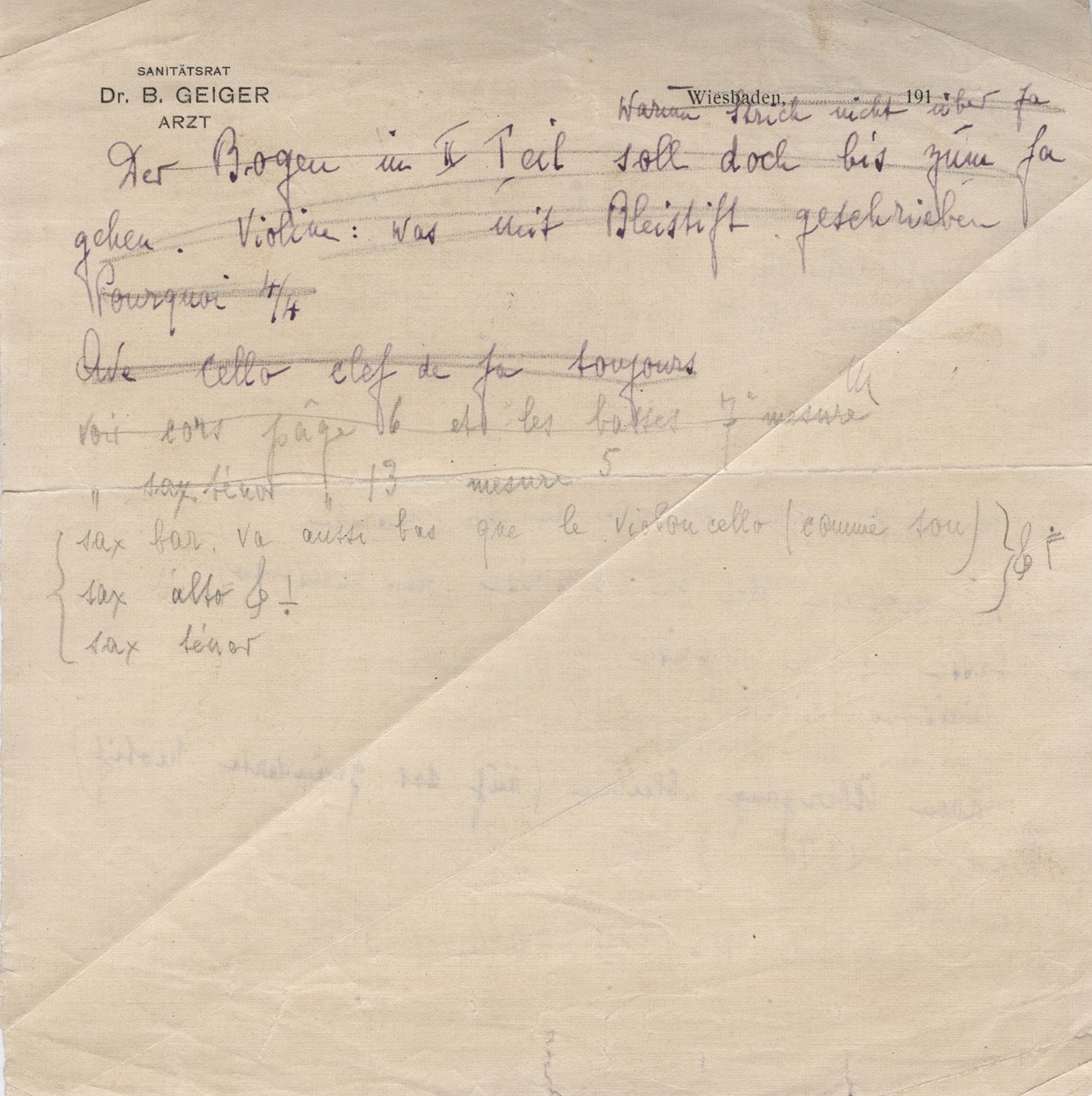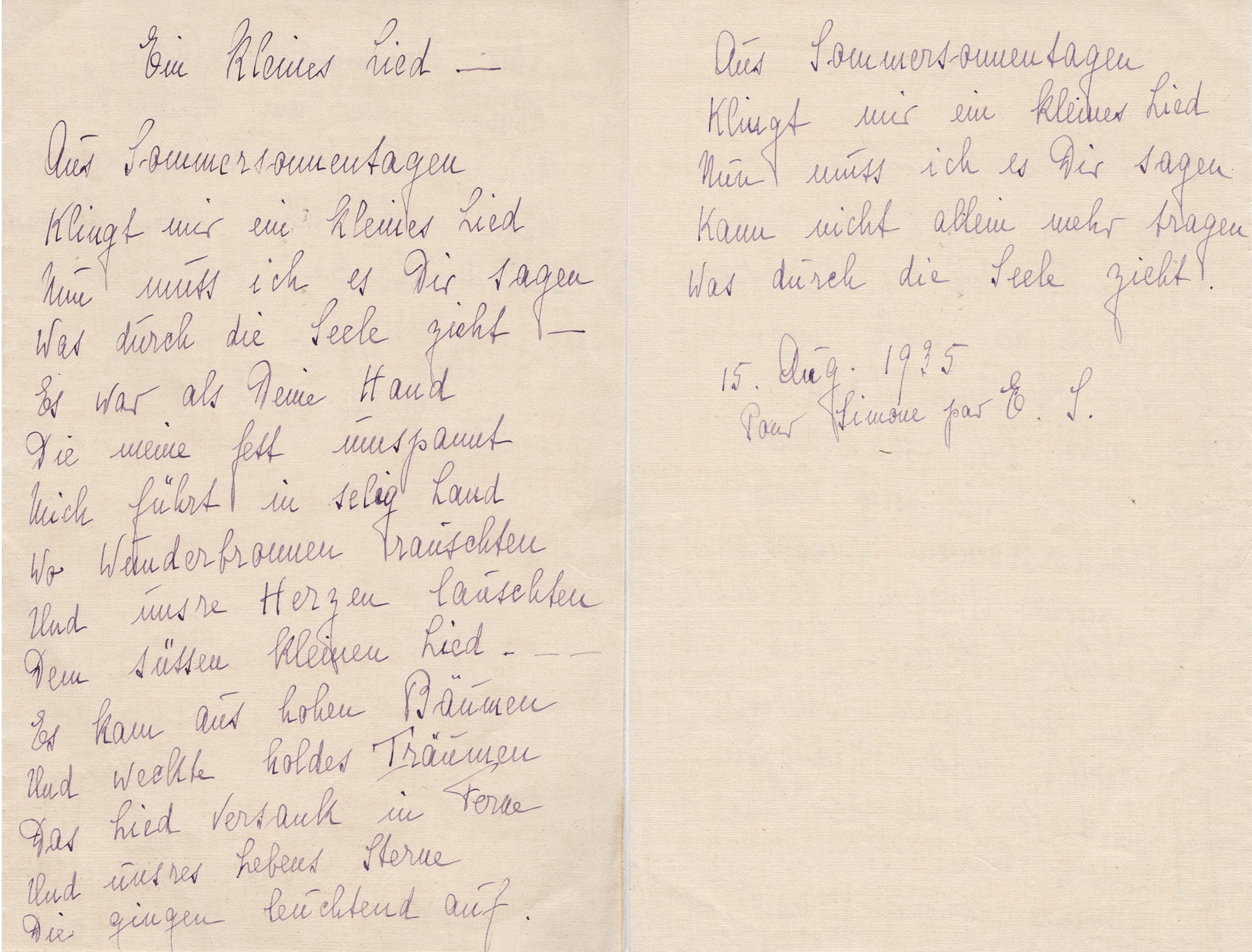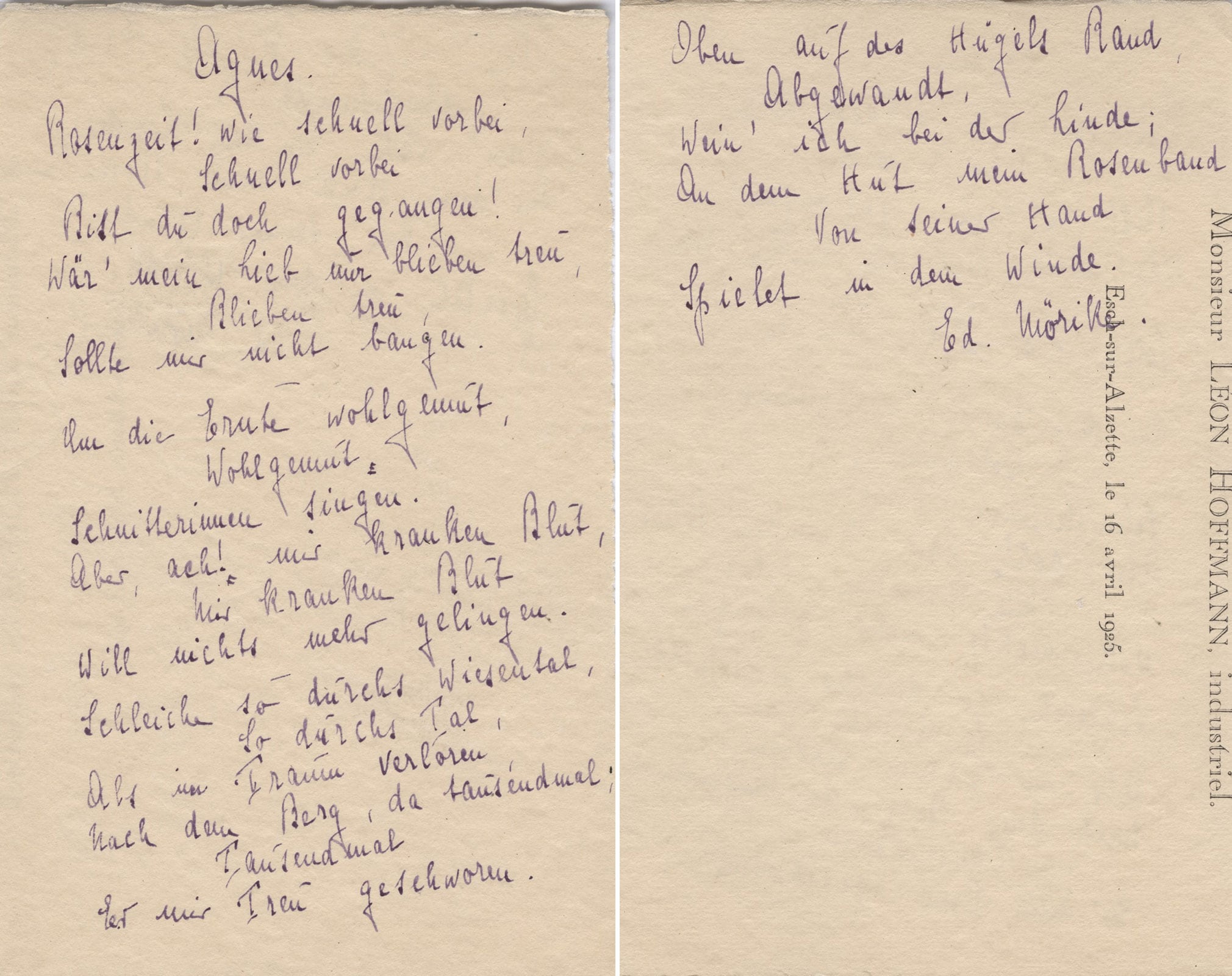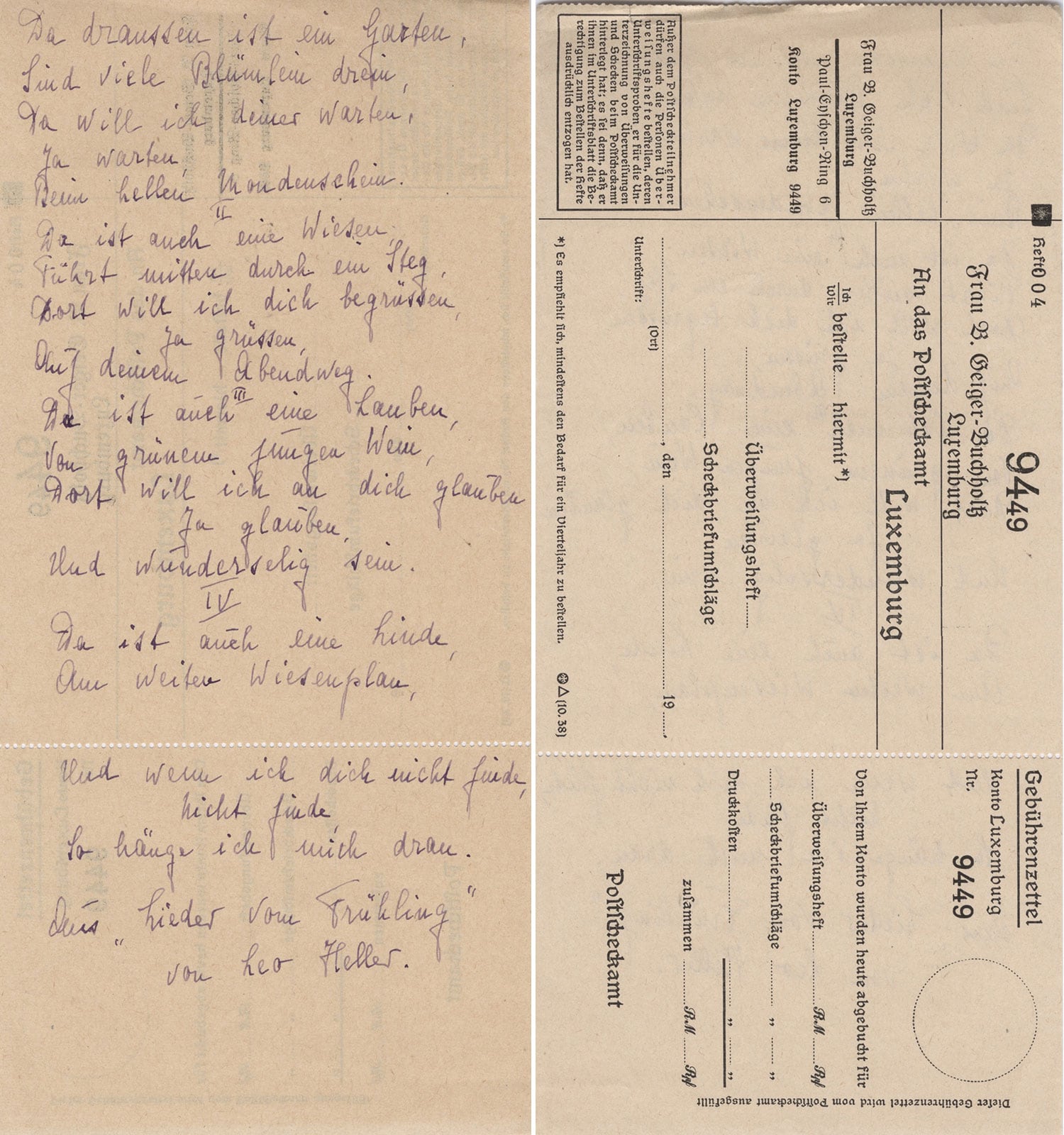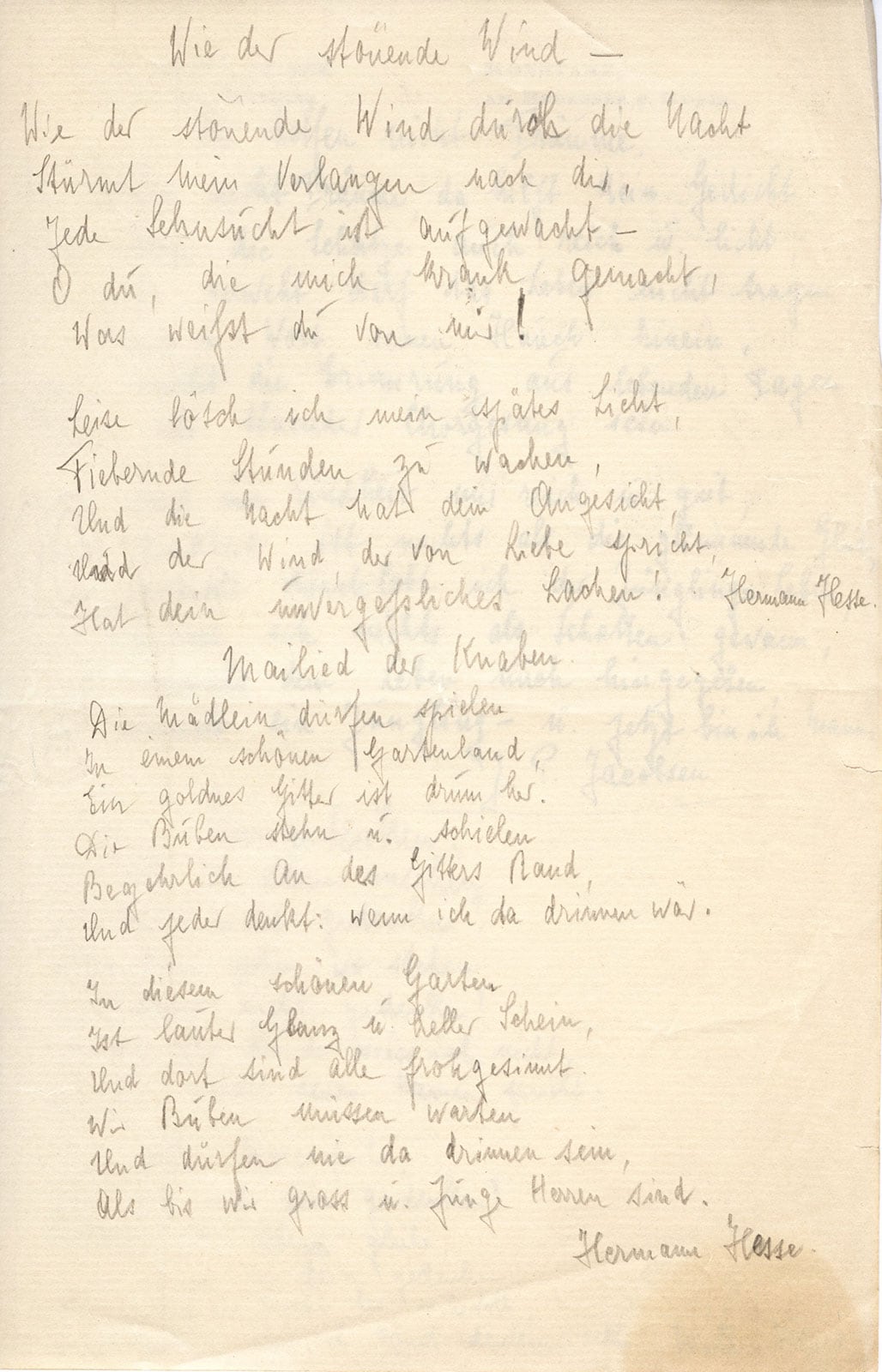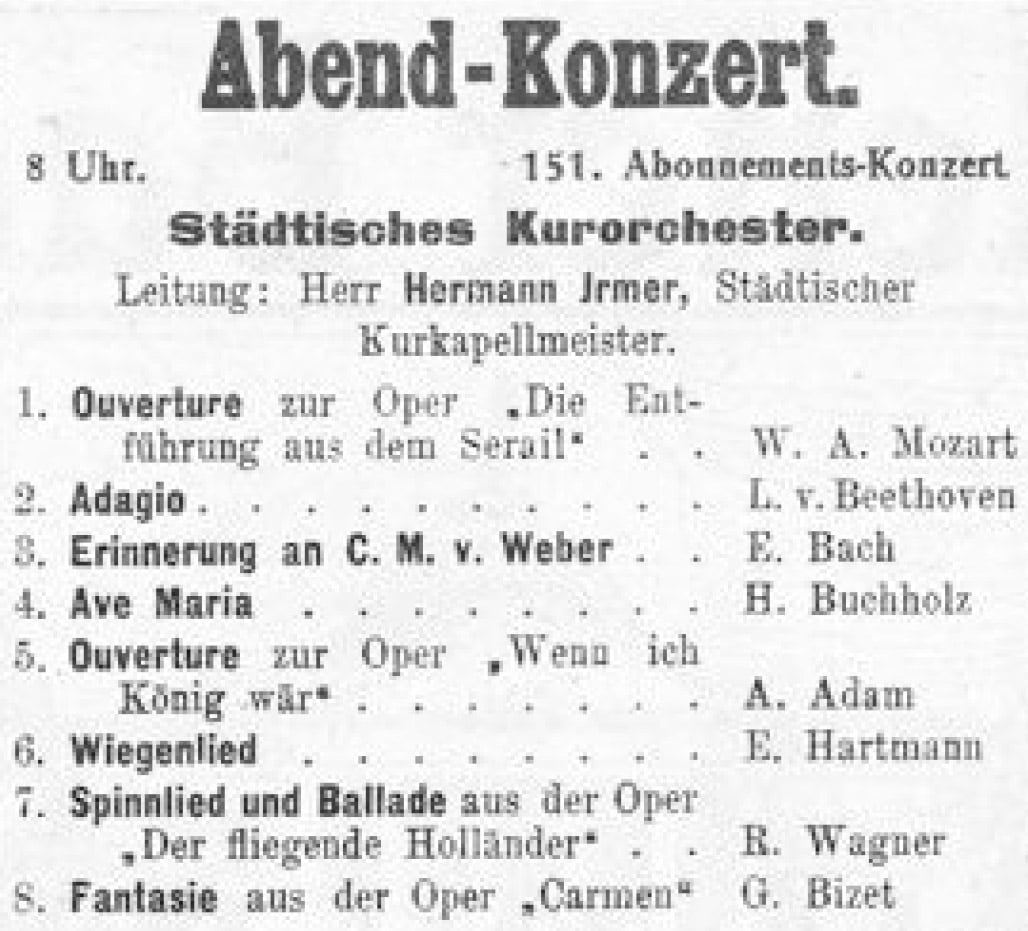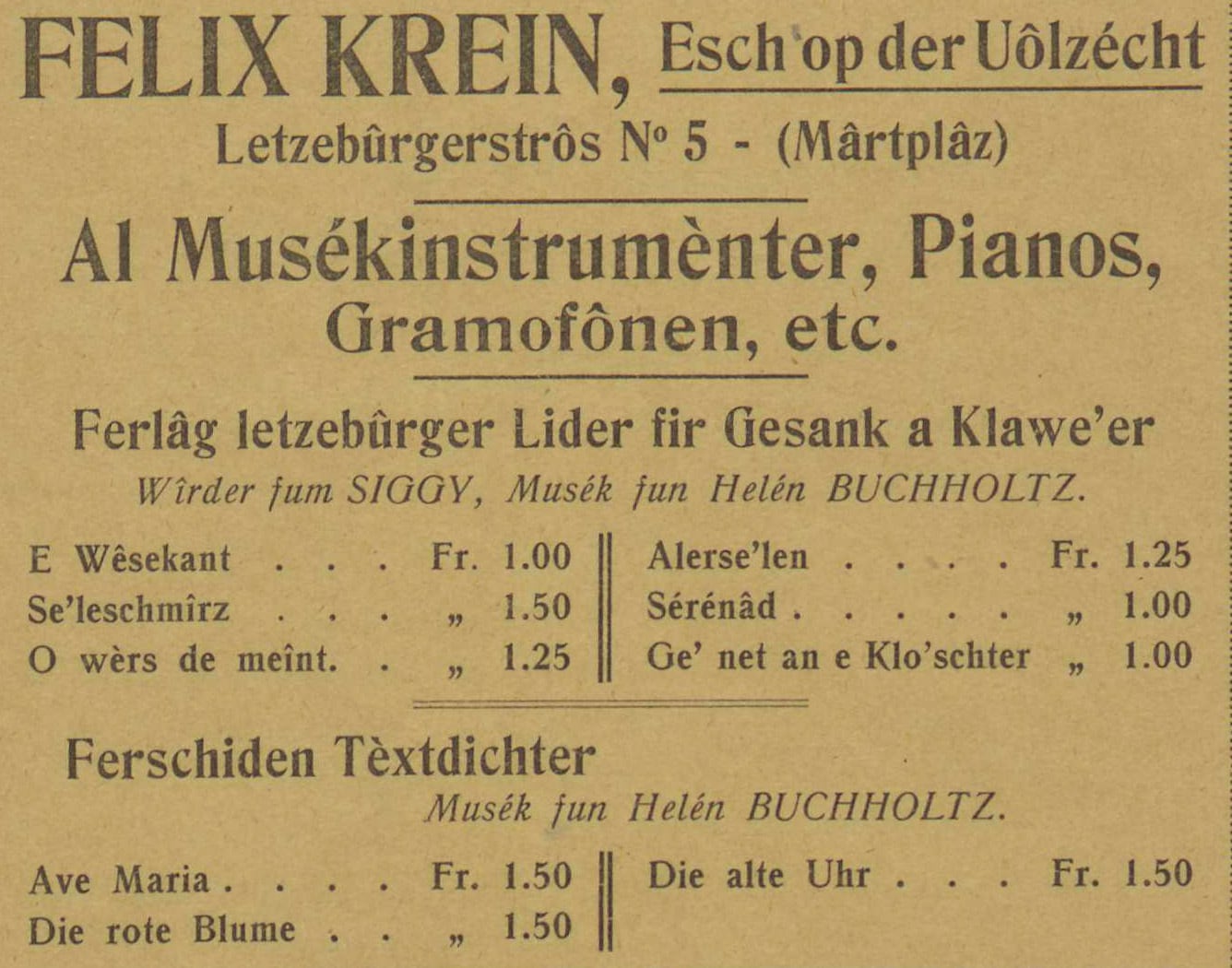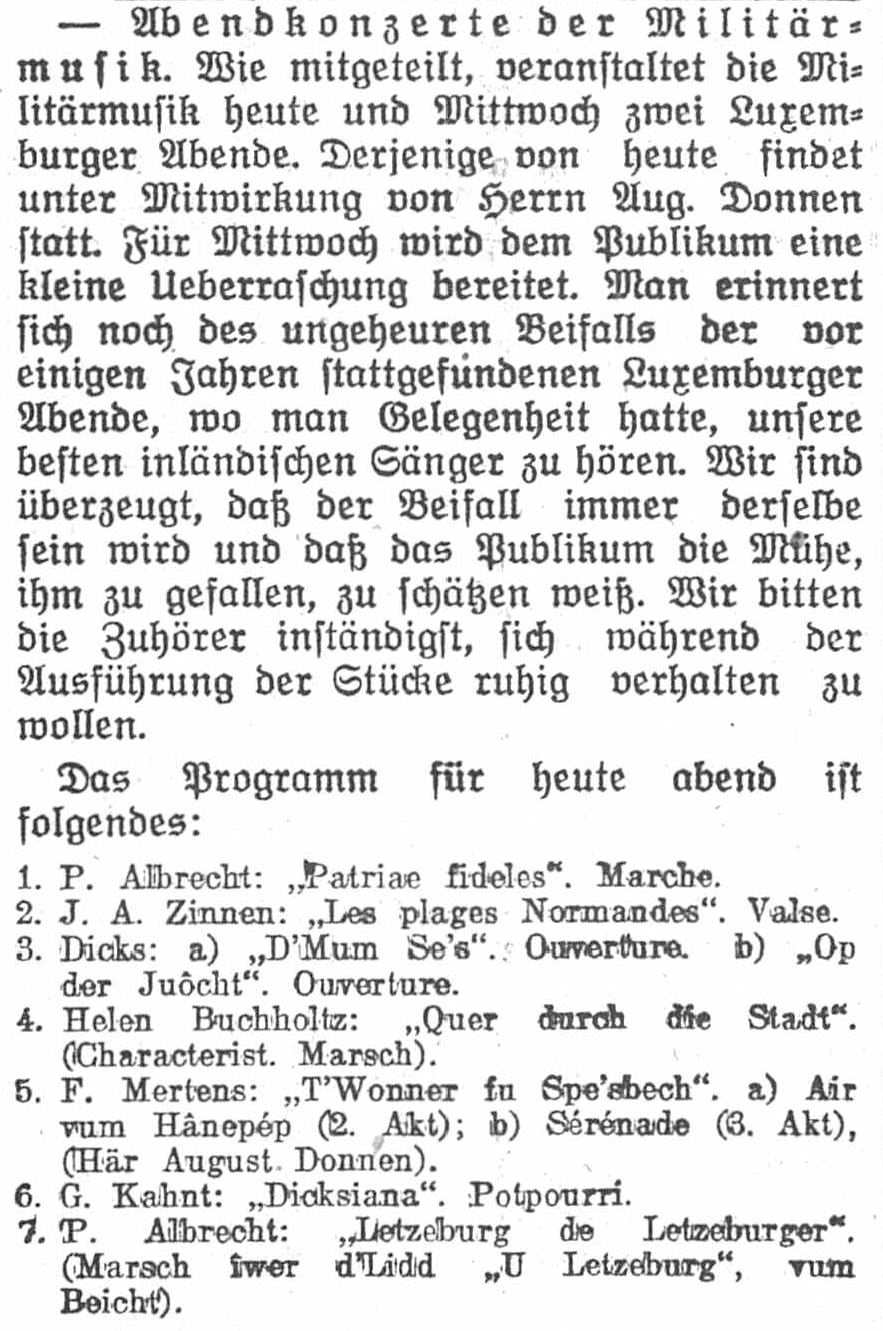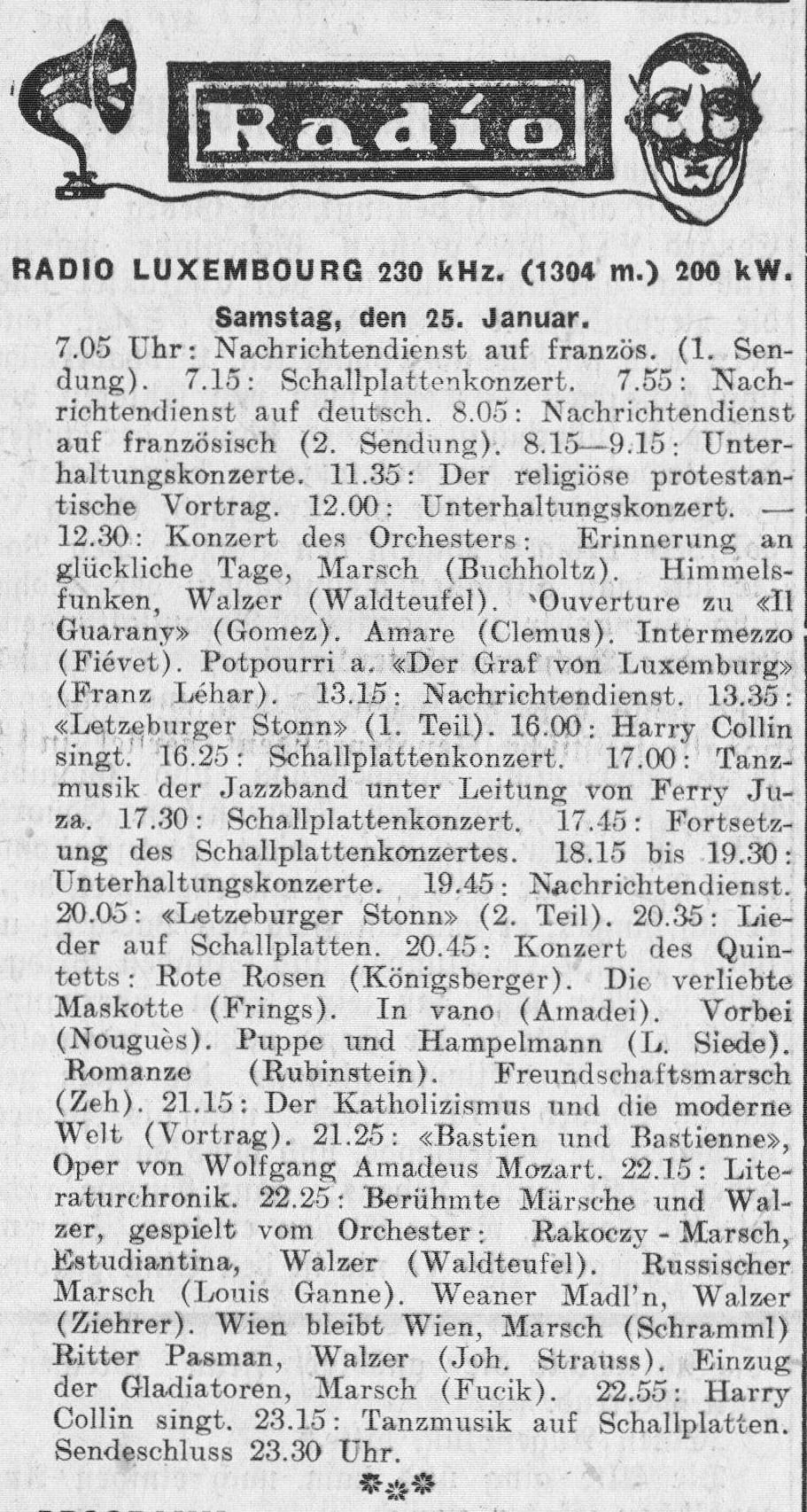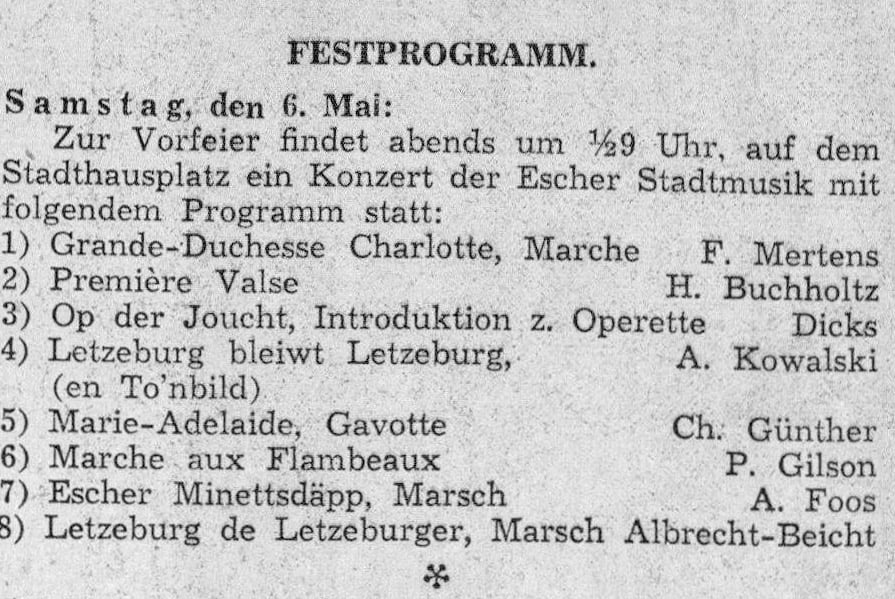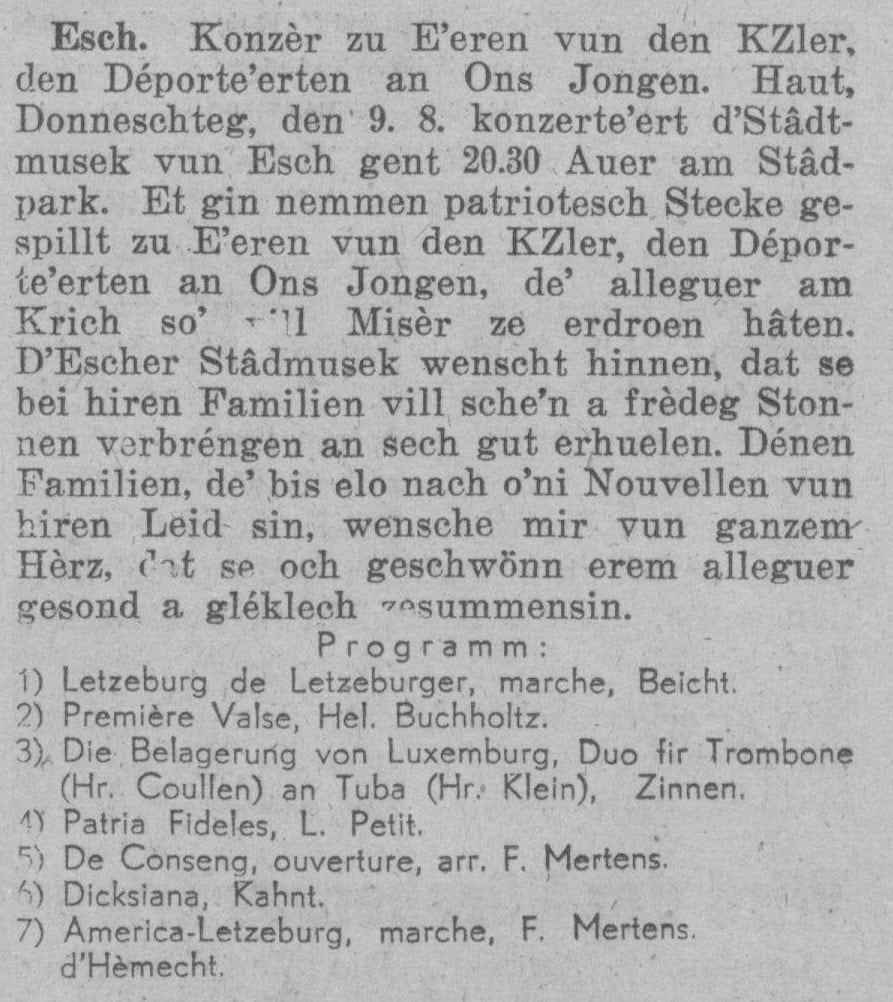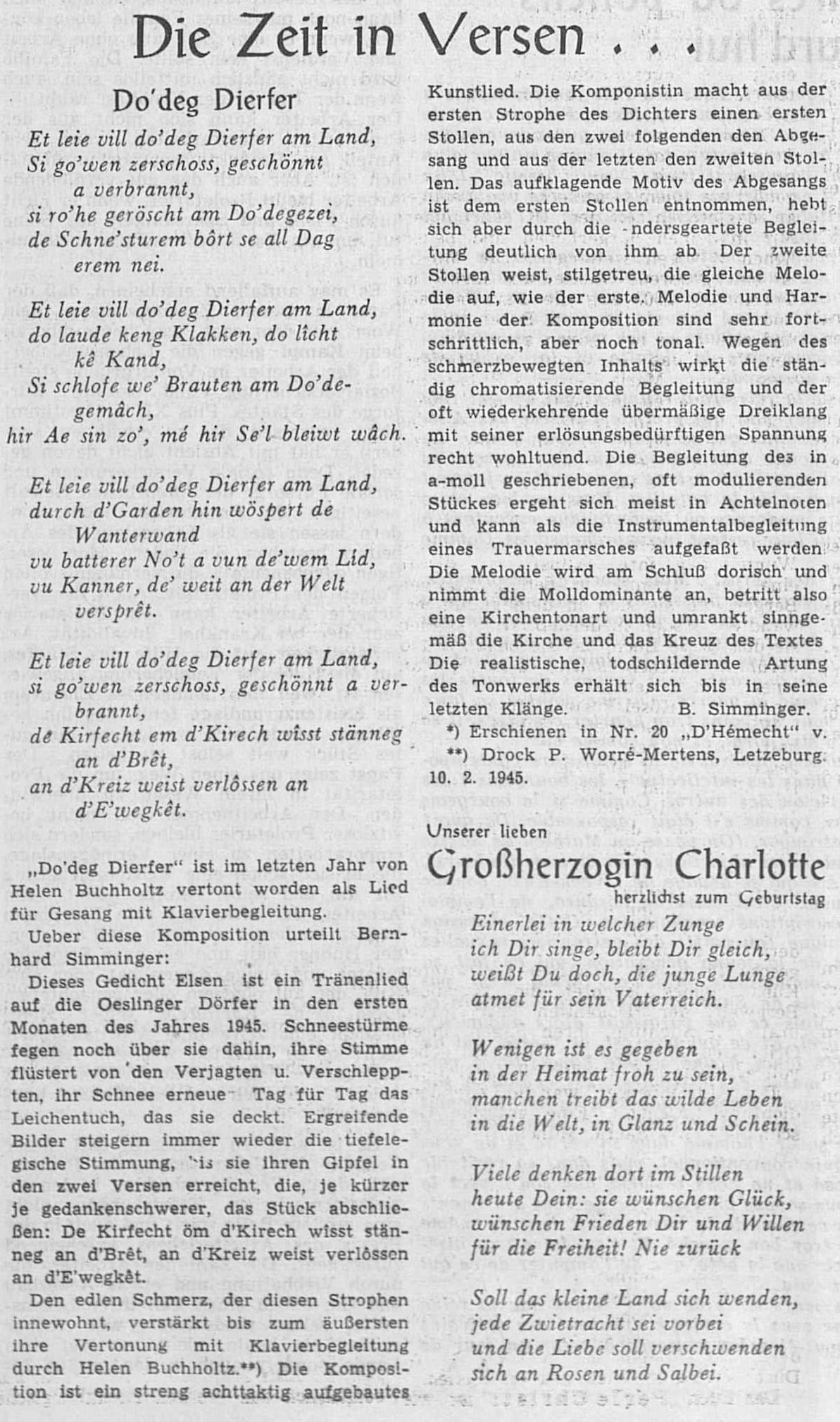
1877 – 1953
Helen Buchholtz
1877 in Esch/Alzette geboren, erblickte Charlotte Helena, genannt Helen, als fünftes und letztes Kind einer gut-bürgerlichen Familie das Licht der Welt. Mit Vater Daniel Buchholtz – Inhaber einer Eisenwarenhandlung und späterem Gründer der Brauerei Buchholtz –, Mutter Thérèse und ihren Geschwistern wohnte die junge Helen in einem Haus in der Avenue de la Gare (heute 22, boulevard John F. Kennedy). Über die Kindheit und Jugend der Buchholtz-Mädchen ist wenig bekannt, doch ist davon auszugehen, dass sie eine solide Grundausbildung erhielten, wozu auch Unterricht in Klavier, Geige und Solfeggio zählte. Da das Escher Konservatorium zu dieser Zeit noch nicht existierte, erhielt Helen aller Wahrscheinlichkeit nach Privatunterricht.
After her time at the girls’ boarding school in Longwy, which Helen attended for some time in the early 1890s, she returned to her parental home. As her nephew François Ettinger later reported, Helen devoted almost her entire time to playing the piano and composing. An Ave Maria (1913) is her earliest datable work.
In 1914, at the age of 36 and thus quite late for the time, Helen Buchholtz married the German physician Bernhard Geiger and moved to Wiesbaden. Here the Städtisches Kurorchester Wiesbaden performed some of her works. With settings of the Luxembourgish poet Siggy vu Letzeburg, Buchholtz published her first songs in 1916 with the publisher Felix Krein in Esch. These were followed by three more songs published in Wiesbaden. After the sudden death of her husband in 1921, Buchholtz continued to live in Wiesbaden for a few years before purchasing a villa in Luxembourg City in the mid-1920s and moving back to her homeland. The childless widow was financially secure throughout her life and never had to work to gain a living.
In the 1920s and 1930s, especially the march Aus frohen Tagen and the Ist Valse for harmony orchestra were quite popular and regularly performed by the Luxembourgish Military Band and the Municipal brass band of Esch. Furthermore, Buchholtz published settings of the poet Willy Goergen in 1924 and 1936, as well as three male choruses in 1927.
Mit Do’deg Dierfer von Albert Elsen vertonte Buchholtz eines der eindrücklichsten Gedichte der luxemburgischen Nachkriegsliteratur. Das Lied wurde 1949 veröffentlicht und in der zeitgenössischen Presse außergewöhnlich ausführlich und durchweg positiv rezensiert; es stellt das letzte kompositorische Zeugnis der Komponistin dar.
In total, Helen Buchholtz left behind an extensive œuvre of around 140 compositions, with a focus on songs for voice and piano in German and Luxembourgish, works for solo piano and orchestral works. However, only a fraction of her work was performed during her lifetime – primarily her songs in Luxembourgish and her works for brass orchestra, which was music that corresponded to the contemporary taste of the broad Luxembourg society. On the other hand, her piano works, including numerous sonatas and character pieces as well as the many settings of German poets (especially Anna Ritter) were kept under lock and key throughout her life. These were only recorded after the composer’s rediscovery in 1998 and are regularly performed in concert.
Text: Noemi Deitz
“,”after_title”:””,”widget_id”:”arbitrary-instance-662185b59a44f”} if(typeof setIronAudioplayers !== “undefined”){ setIronAudioplayers(“arbitrary-instance-662185b59a44f”); }
Do’deg Dierfer for voice and piano, text by Albert Elsen
Mady Bonert (soprano), Claude Weber (piano)
Track 9, CD Lieder Luxemburgischer Komponistinnen. Mélodies de compositrices luxembourgeoises. Helen Buchholtz (1877–1953). Lou Koster (1889–1973) , Euterpe 2003
“,”after_title”:””,”widget_id”:”arbitrary-instance-662185b59c657″} if(typeof setIronAudioplayers !== “undefined”){ setIronAudioplayers(“arbitrary-instance-662185b59c657”); }
Rosenmär for voice and piano, text by Nikolaus Welter
Gerlinde Sämann (soprano), Claude Weber (piano)
Track 13, CD Und hab’ so große Sehnsucht doch… Lieder und Balladen von Helen Buchholtz im Dialog mit zeitgenössischen Komponistinnen, Solo Musica 2019
“,”after_title”:””,”widget_id”:”arbitrary-instance-662185b59d570″} if(typeof setIronAudioplayers !== “undefined”){ setIronAudioplayers(“arbitrary-instance-662185b59d570”); }
Illusions for voice and piano, text by Marcel Noppeney
Gerlinde Sämann (soprano), Claude Weber (piano)
Track 6, CD Und hab’ so große Sehnsucht doch… Lieder und Balladen von Helen Buchholtz im Dialog mit zeitgenössischen Komponistinnen, Solo Musica 2019
“,”after_title”:””,”widget_id”:”arbitrary-instance-662185b59e328″} if(typeof setIronAudioplayers !== “undefined”){ setIronAudioplayers(“arbitrary-instance-662185b59e328”); }
Schlafe, ach, schlafe for voice and piano, text by Anna Ritter
Mady Bonert (soprano), Claude Weber (piano)
Track 4, CD Lieder Luxemburgischer Komponistinnen. Mélodies de compositrices luxembourgeoises. Helen Buchholtz (1877–1953). Lou Koster (1889–1973) , Euterpe 2003
“,”after_title”:””,”widget_id”:”arbitrary-instance-662185b59f436″} if(typeof setIronAudioplayers !== “undefined”){ setIronAudioplayers(“arbitrary-instance-662185b59f436”); }
So gehn die Tage hin for voice and piano, text by Maidy Koch
Gerlinde Sämann (soprano), Claude Weber (piano)
Track 5, CD 2 Und hab’ so große Sehnsucht doch… Lieder und Balladen von Helen Buchholtz im Dialog mit zeitgenössischen Komponistinnen, Solo Musica 2019
“,”after_title”:””,”widget_id”:”arbitrary-instance-662185b5a0128″} if(typeof setIronAudioplayers !== “undefined”){ setIronAudioplayers(“arbitrary-instance-662185b5a0128”); }
Barcarolle for piano
Marco Kraus (piano)
Track 1, CD Helen Buchholtz. Piano Works, cpo 2011
“,”after_title”:””,”widget_id”:”arbitrary-instance-662185b5a0e0a”} if(typeof setIronAudioplayers !== “undefined”){ setIronAudioplayers(“arbitrary-instance-662185b5a0e0a”); }
Nocturno for piano
Marco Kraus (piano)
Track 11, CD Helen Buchholtz. Piano Works, cpo 2011
“,”after_title”:””,”widget_id”:”arbitrary-instance-662185b5a1919″} if(typeof setIronAudioplayers !== “undefined”){ setIronAudioplayers(“arbitrary-instance-662185b5a1919”); }
Sonata in C-sharp minor for piano, 1st movement
Marco Kraus (piano)
Track 12, CD Helen Buchholtz. Piano Works, cpo 2011
Musikalesch Visittekaart: Danielle Roster. D’Musikologin aus dem CID-Fraen an Gender presentéiert hire ganz perséinleche Choix
Broadcast by Radio 100,7 on 30.04.2017, 11:04–12:00
Klassik aktuell: “Ich bin in diese Musik Hineingewachsen”. D’Sopranistin Gerlinde Sämann iwwert d’Komponistin Helen Buchholtz
Broadcast by Radio 100,7 on 05.04.2019, 14:10–14:15
KomponistIn vum Mount: D’Helen Buchholtz (1877–1953). D’Noemi Deitz schreift eng Dokteraarbecht iwwer déi Escher Komponistin
Broadcast by Radio 100,7 on 15.05.2019, 11:10–11:20
Archiv Helen Buchholtz im CID Fraen an Gender
In: MUGI. Musikvermittlung und Genderforschung: Lexikon und multimediale Präsentationen, hg. von Beatrix Borchard und Nina Noeske, Hochschule für Musik und Theater Hamburg, 2003ff. Stand vom 13. Juli 2018
Le Salon de Helen Buchholtz
In: MUGI. Musikvermittlung und Genderforschung: Lexikon und multimediale Präsentationen, hg. von Beatrix Borchard und Nina Noeske, Hochschule für Musik und Theater Hamburg, 2003ff. Stand vom 13. Juli 2018
PÄdagogische Mappe
Diese Arbeitsmappe mit Anleitungen und Materialien wurde von Noemi Deitz zusammengestellt und kann gratis benutzt werden. Über Rückmeldungen würden wir uns freuen!
